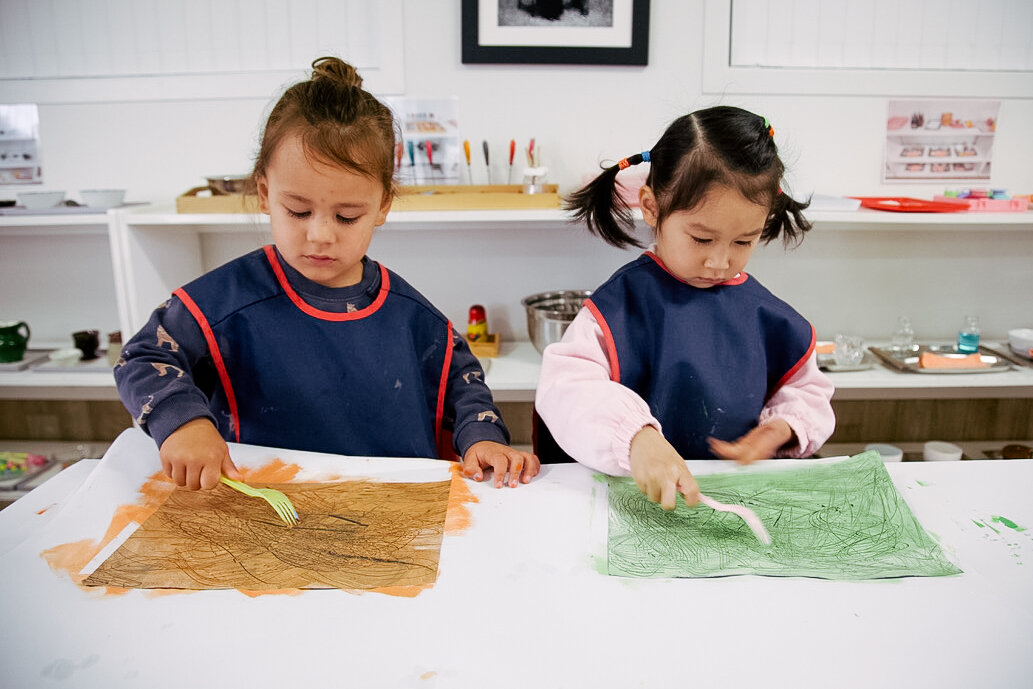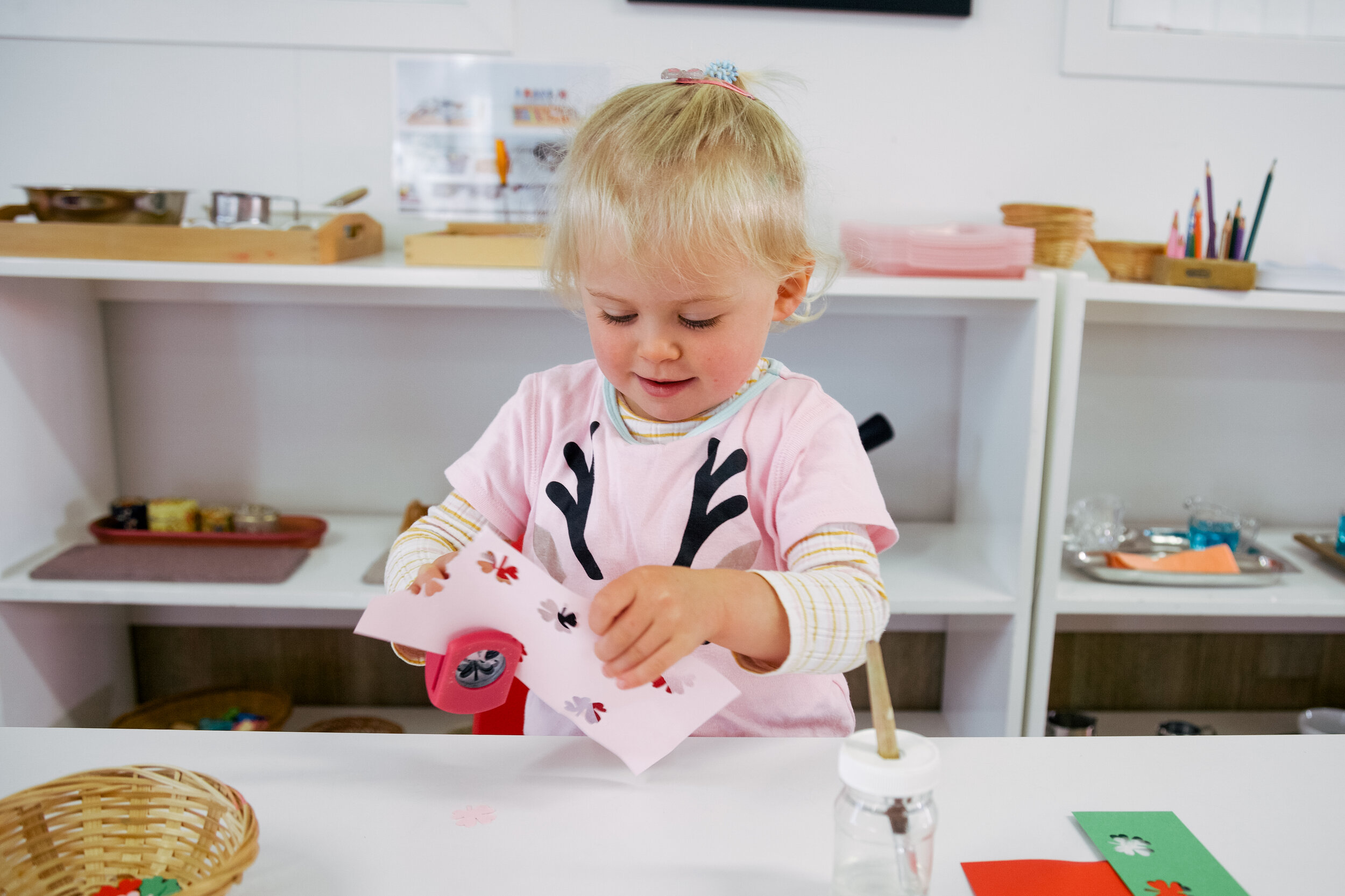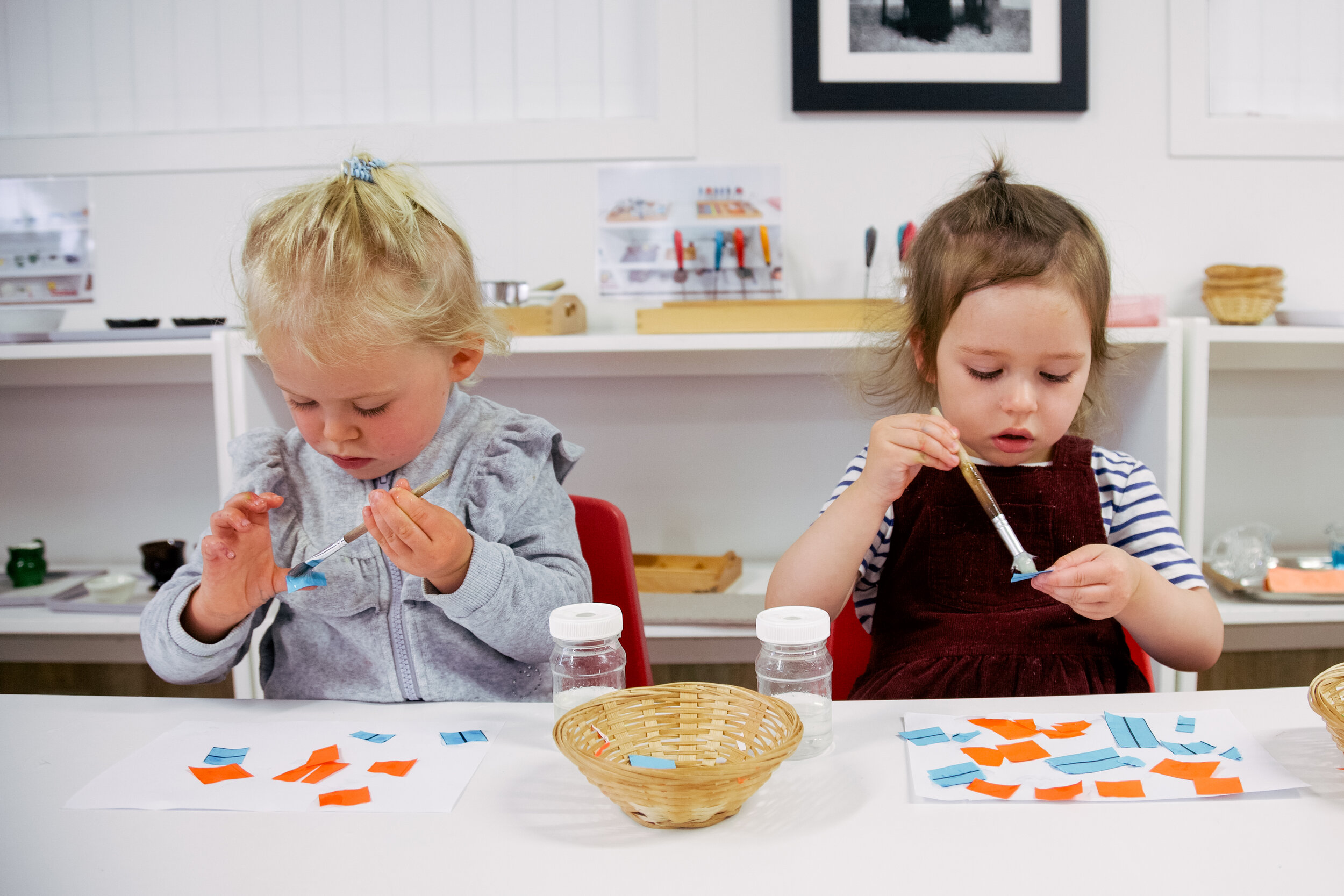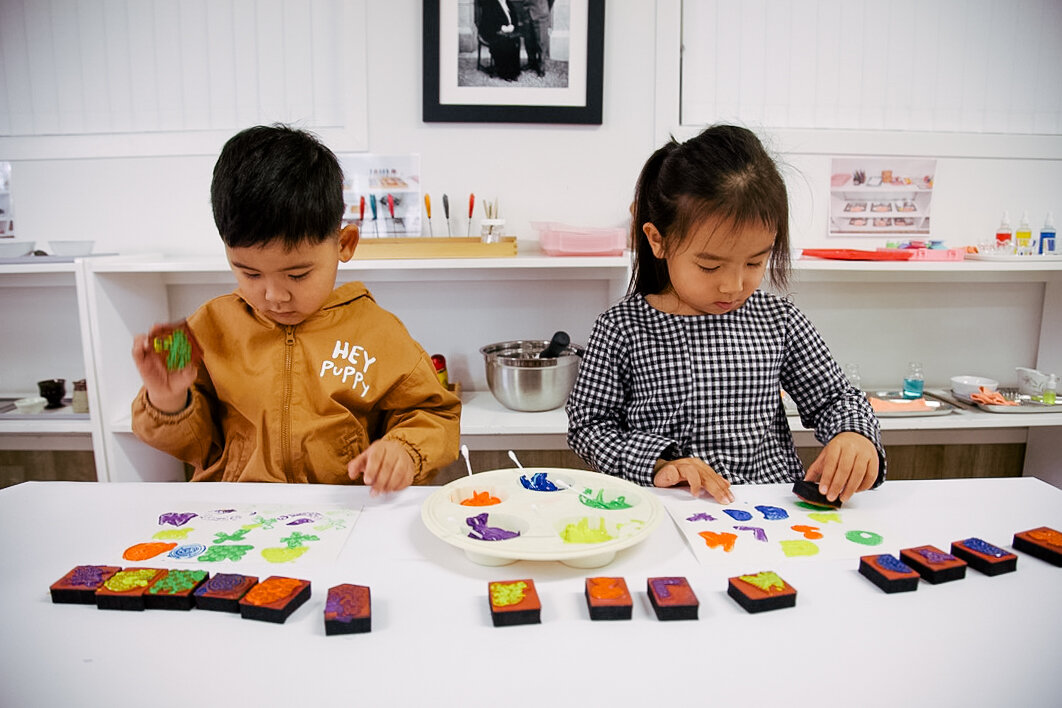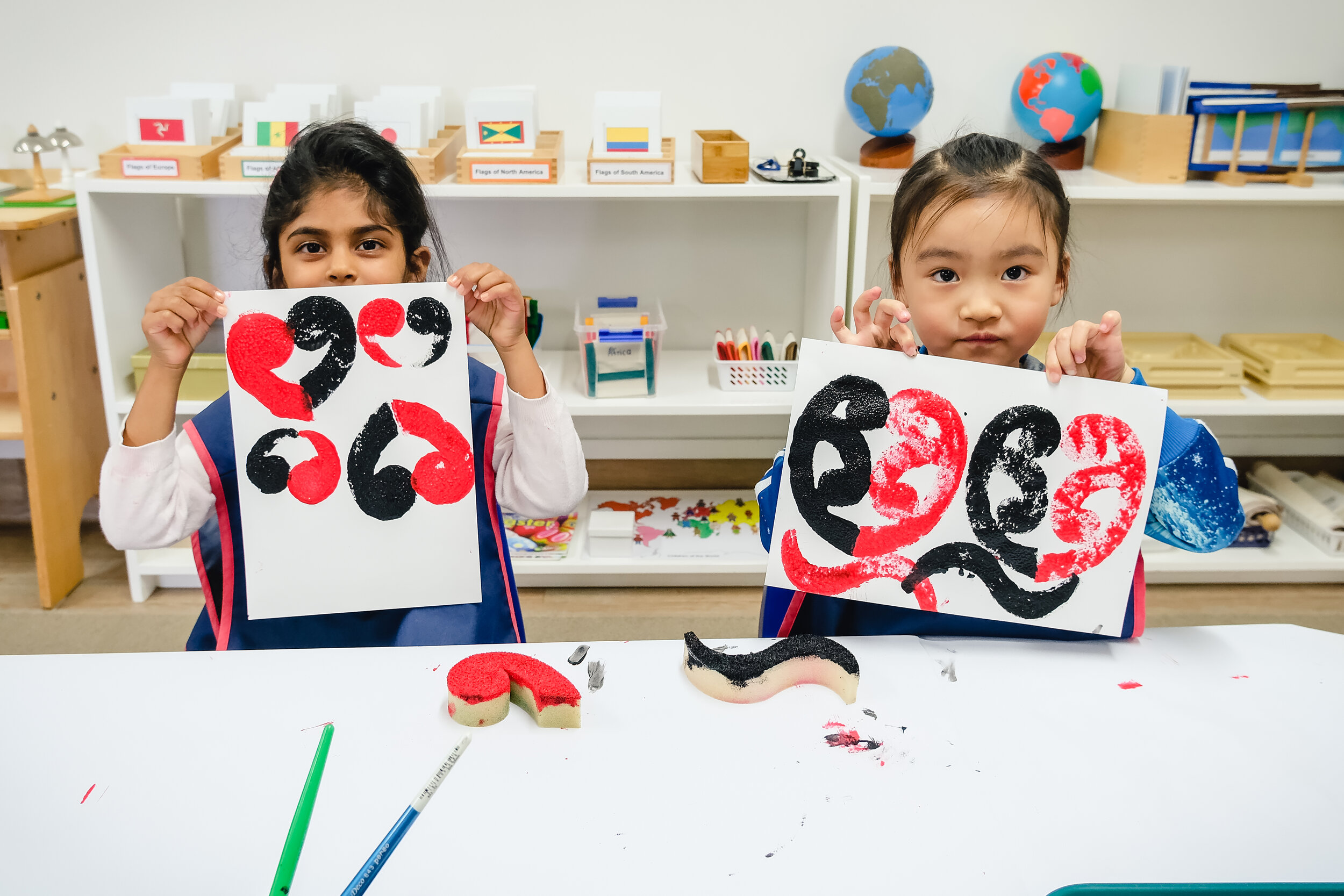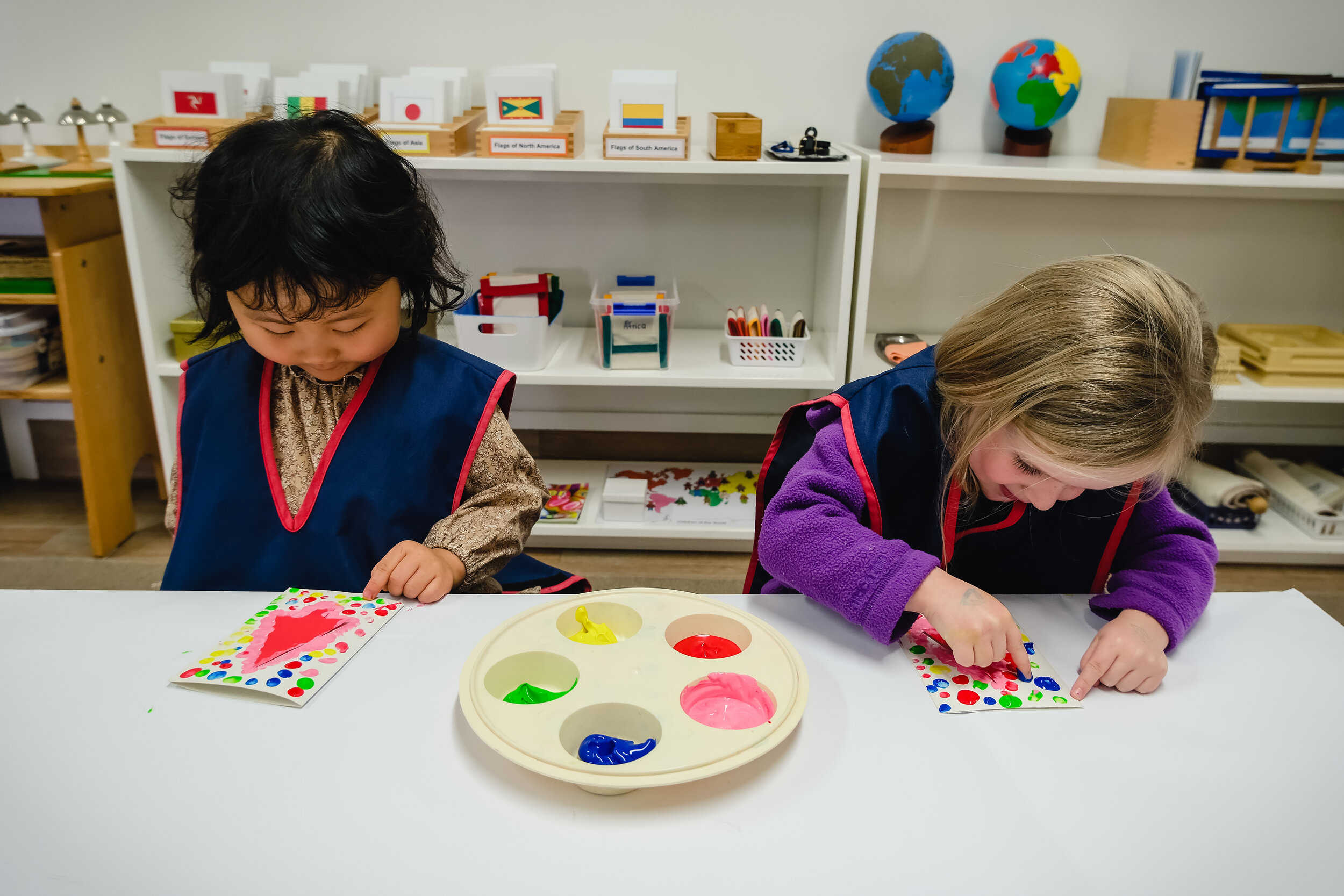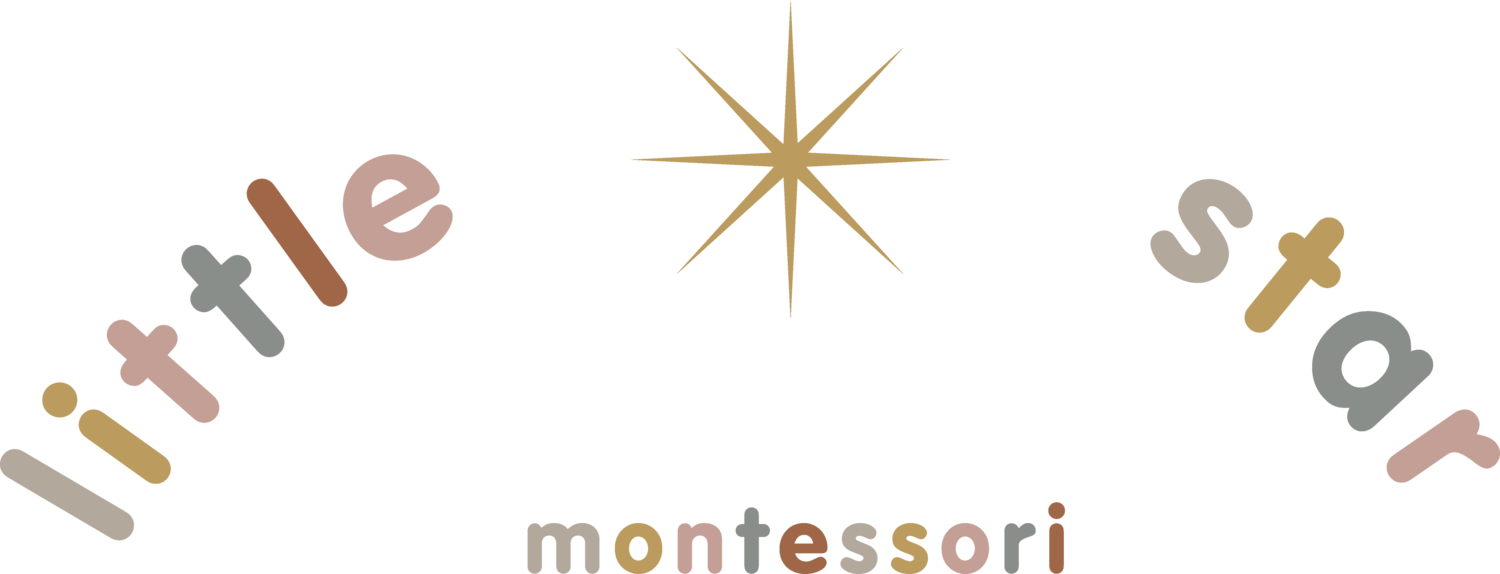Practical Life
The Exercises of Practical life provide wholesome activities which allow the children to develop self-regulation, coordination of movement, awareness of their environment, orderly processing, sequencing, concentration and competence in a variety of tasks leading to independence and responsibility. The Exercises of Practical Life are classified under the headings of Preliminary Exercises, Care of the Environment, Care of the Person, Grace and Courtesy and Movement.
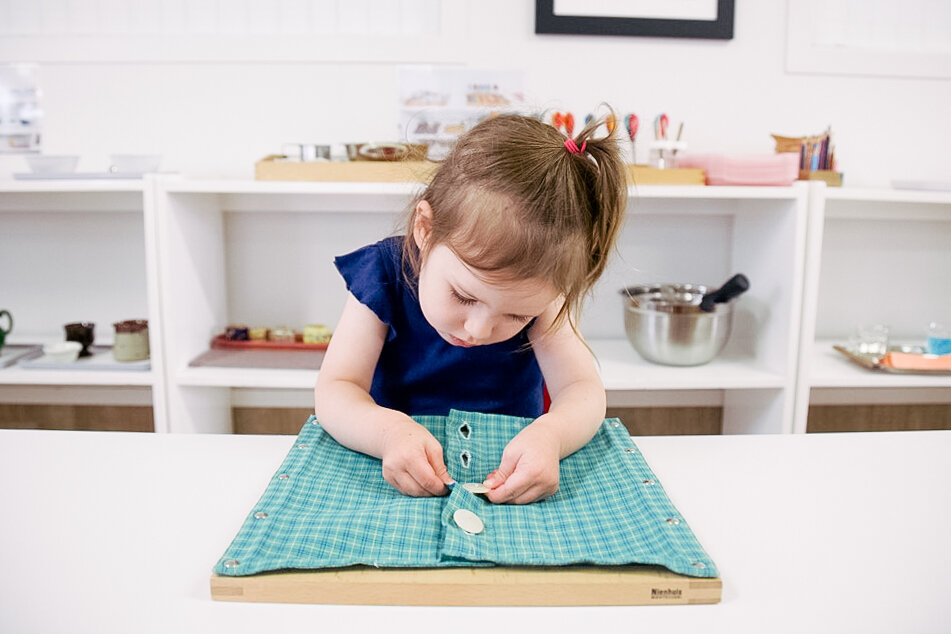
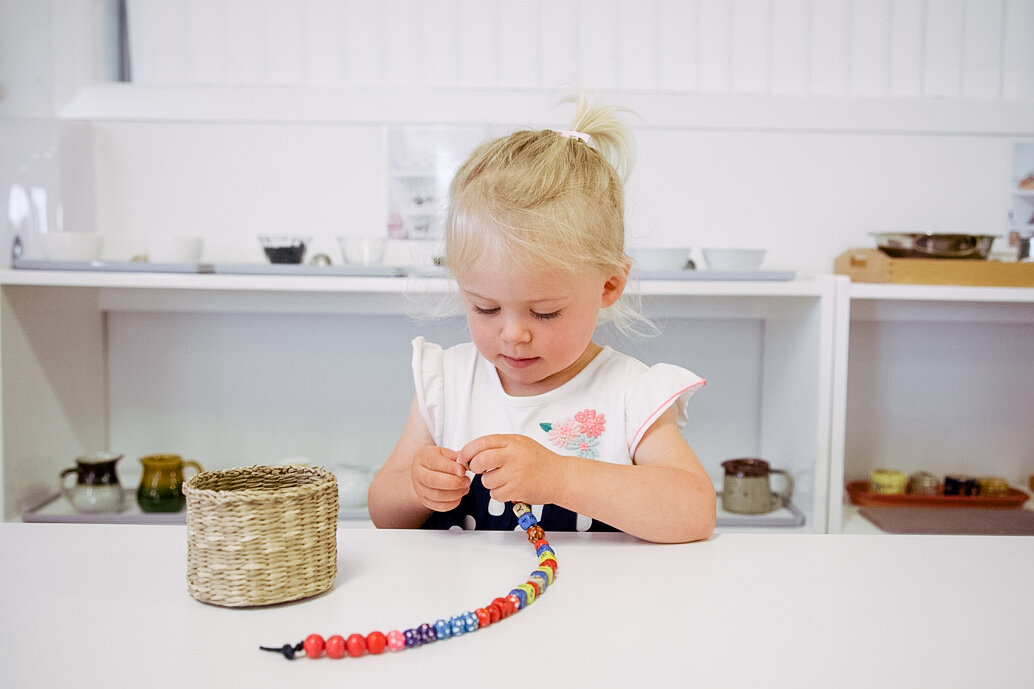
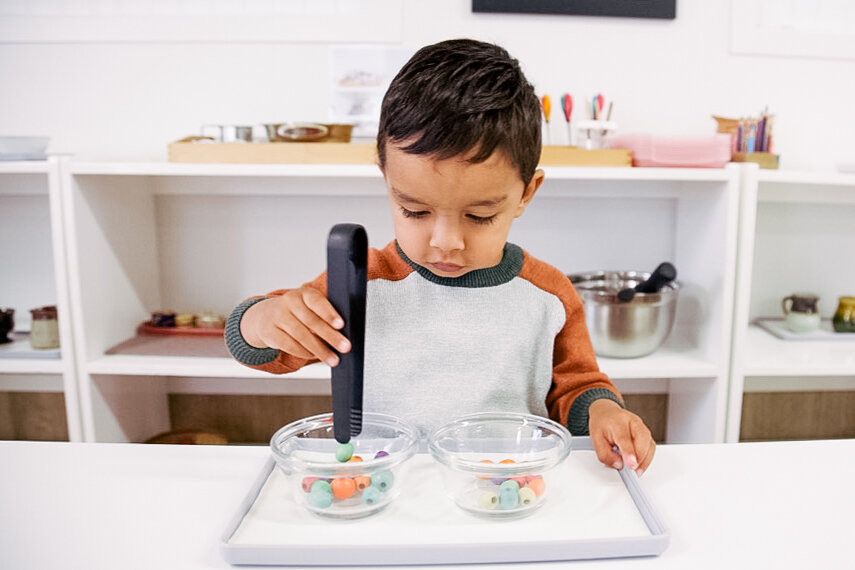
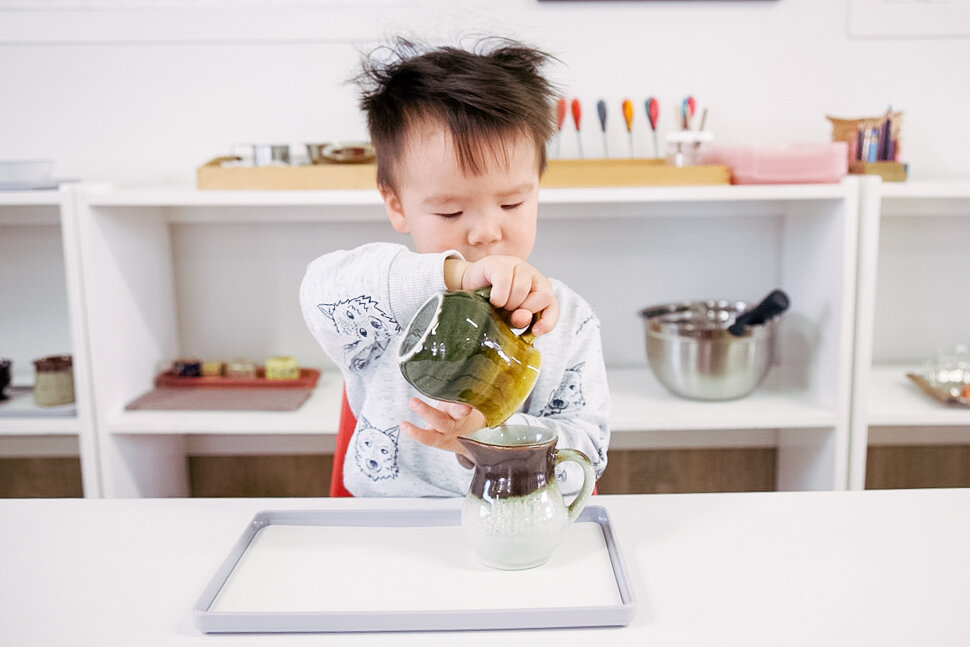
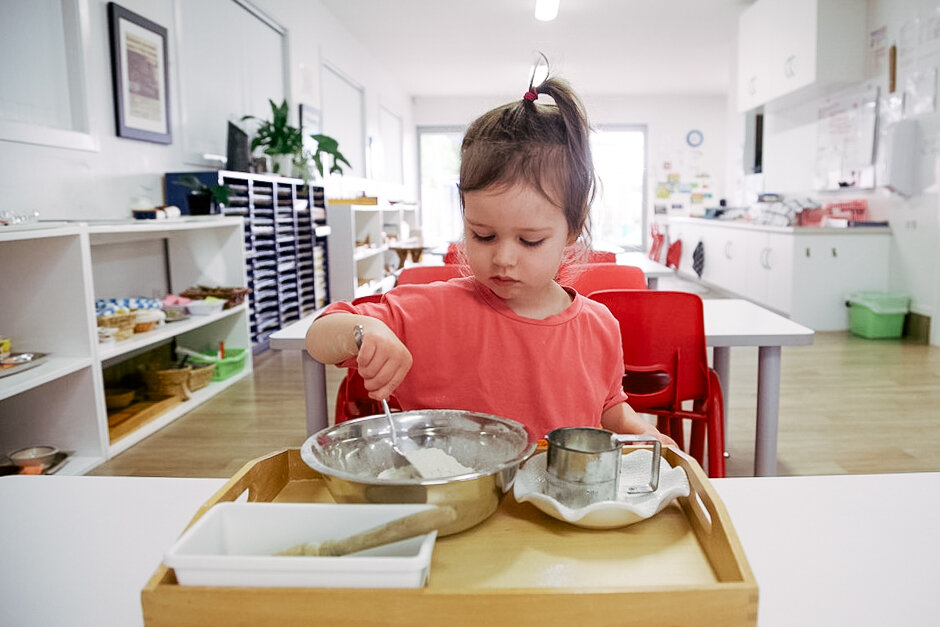
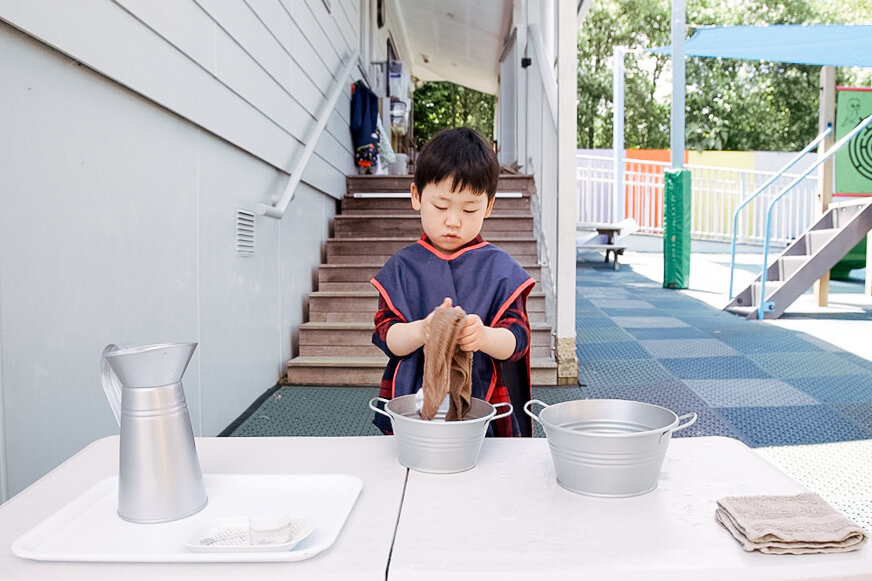
Sensorial
The Sensorial materials allow the children to classify sensorial impressions in an organised, orderly and scientific manner. The Sensorial materials are mathematically graded. They isolate one quality only, keeping the remaining characteristics identical, and also have a built in control of error. This makes it possible for children to learn the names of abstract concepts made concrete in each of these materials such as size, shape, colour, taste, texture, sound, temperature and weight.

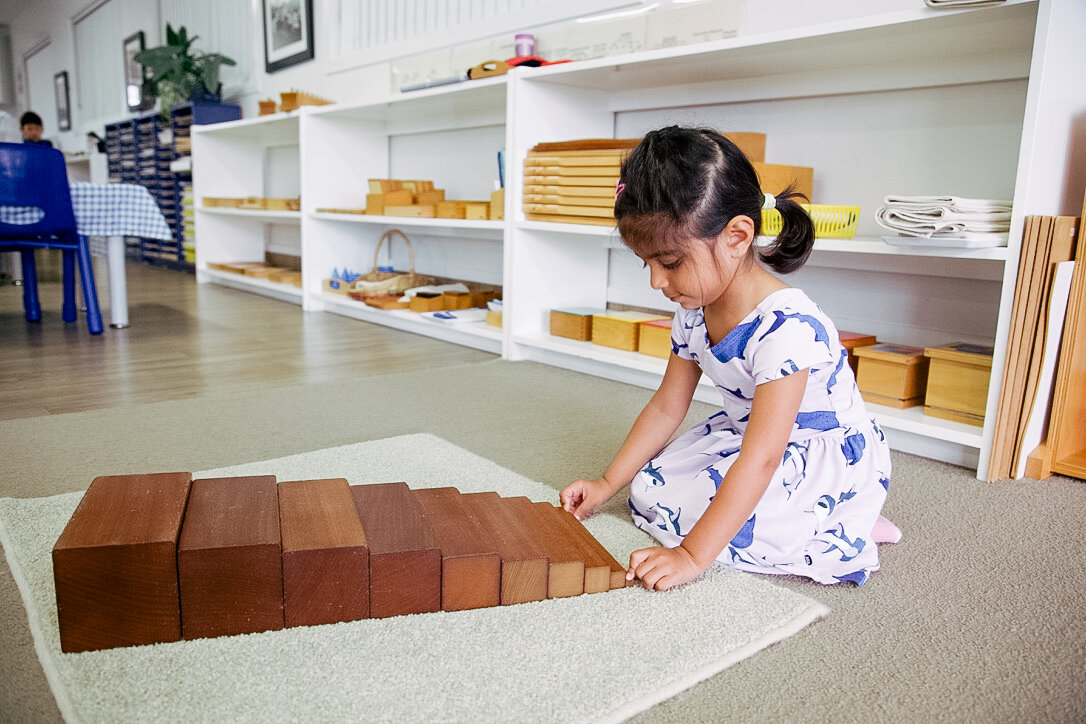
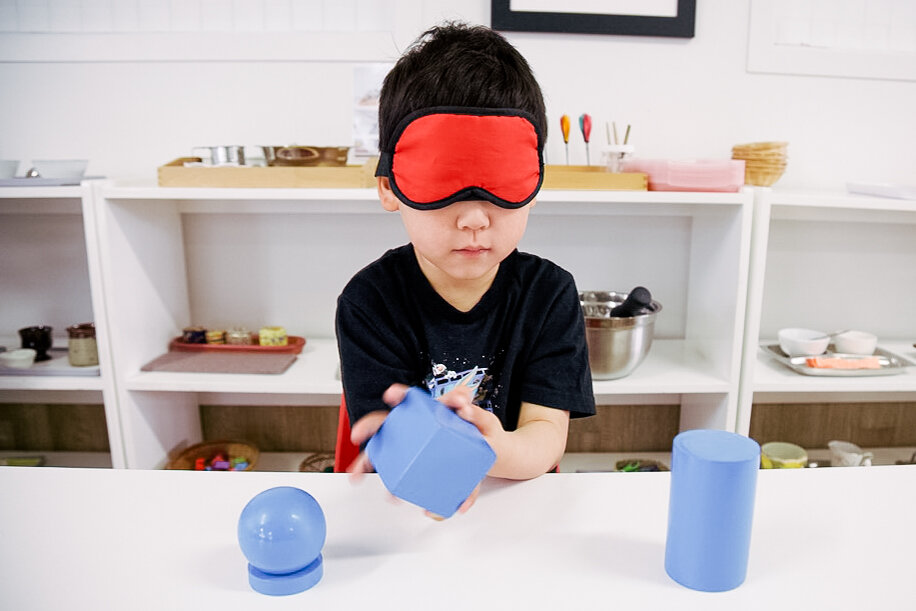
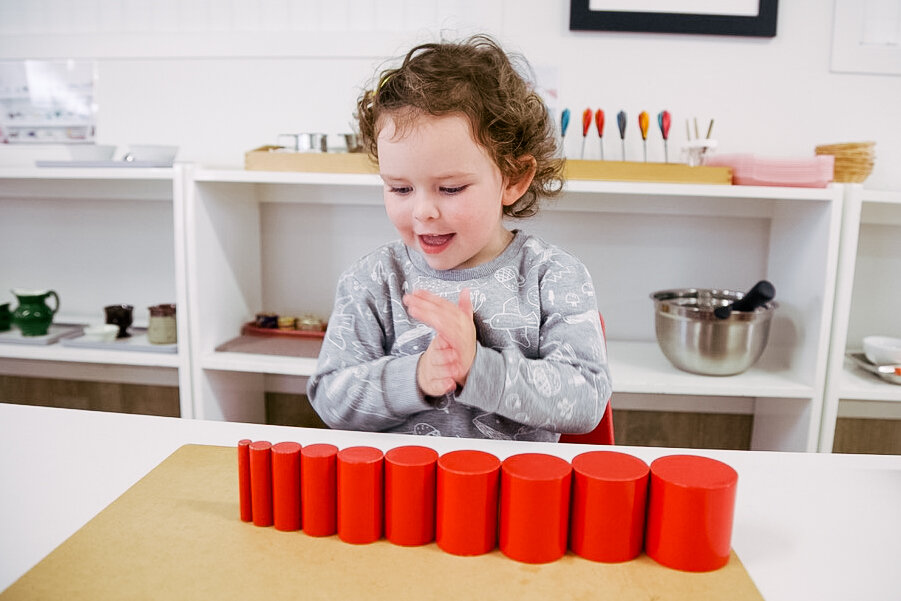
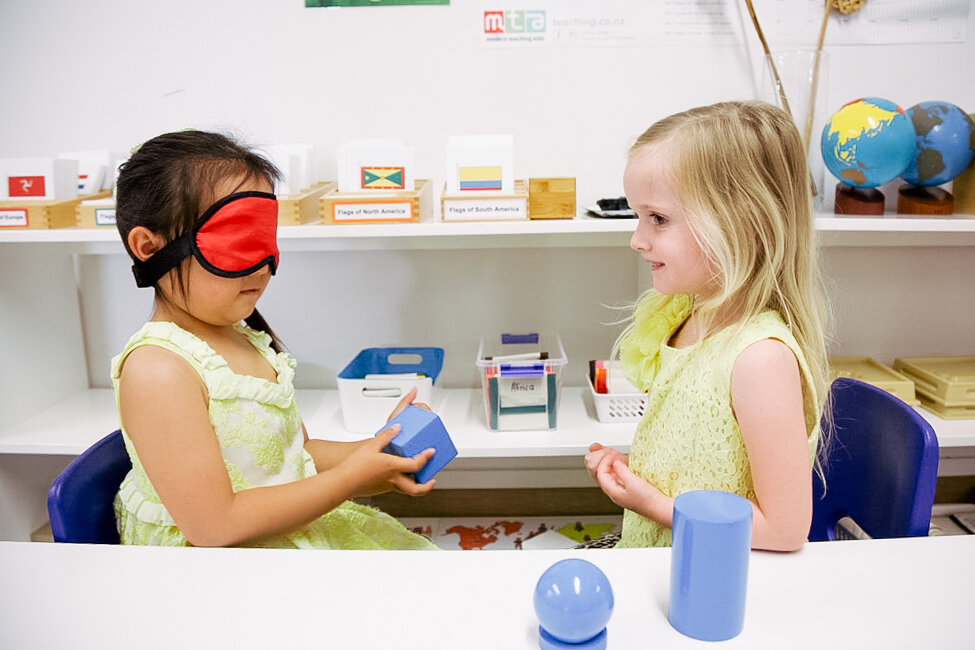
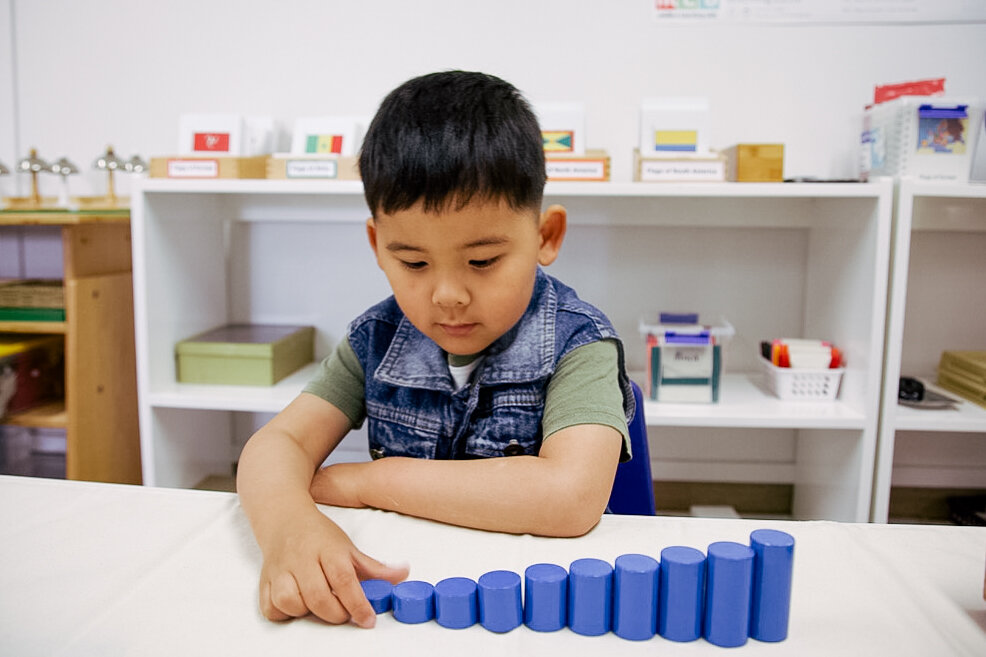
Botany
Botany materials help to transform the children’s inherent love of the natural world into a sensorial exploration of the multitude of growing things such as plants, trees, flowers and shrubs.
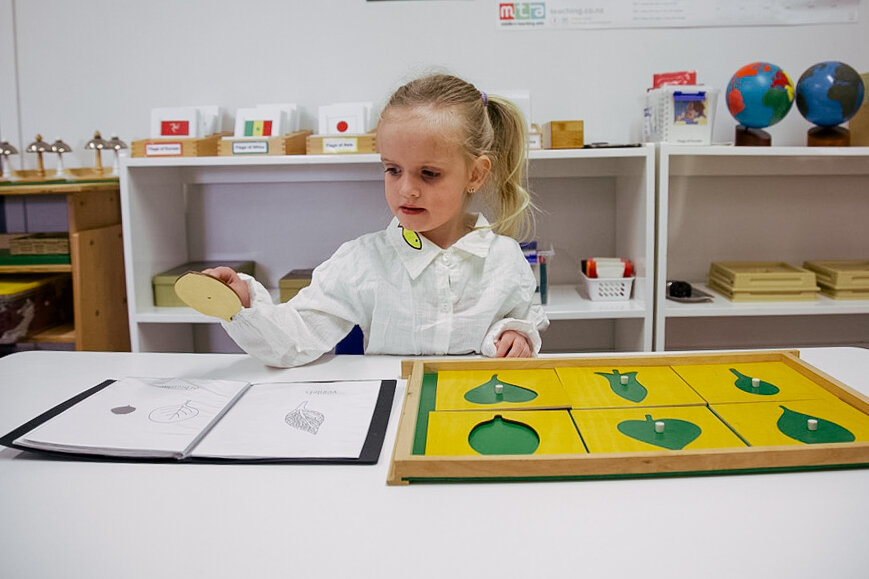
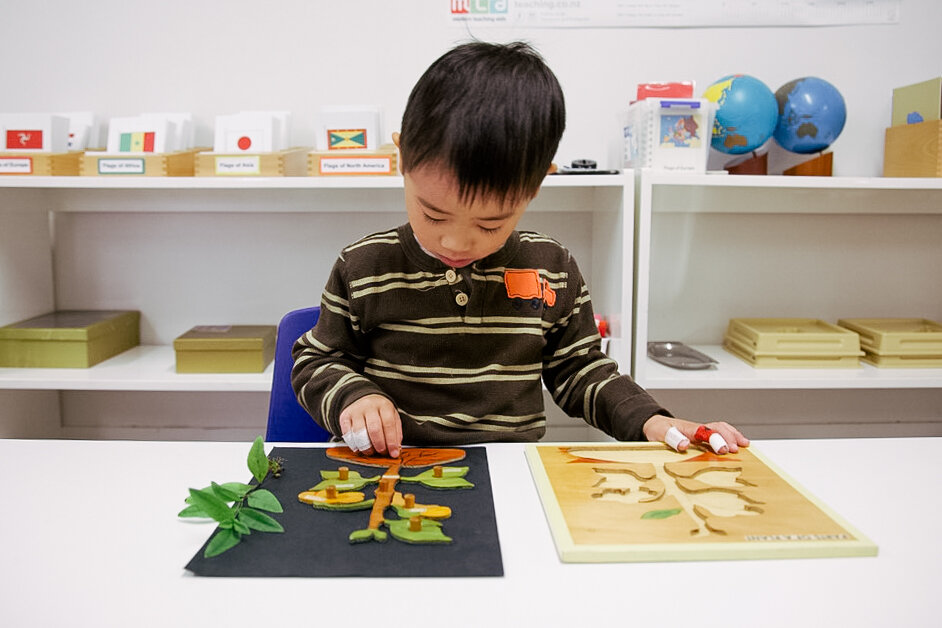
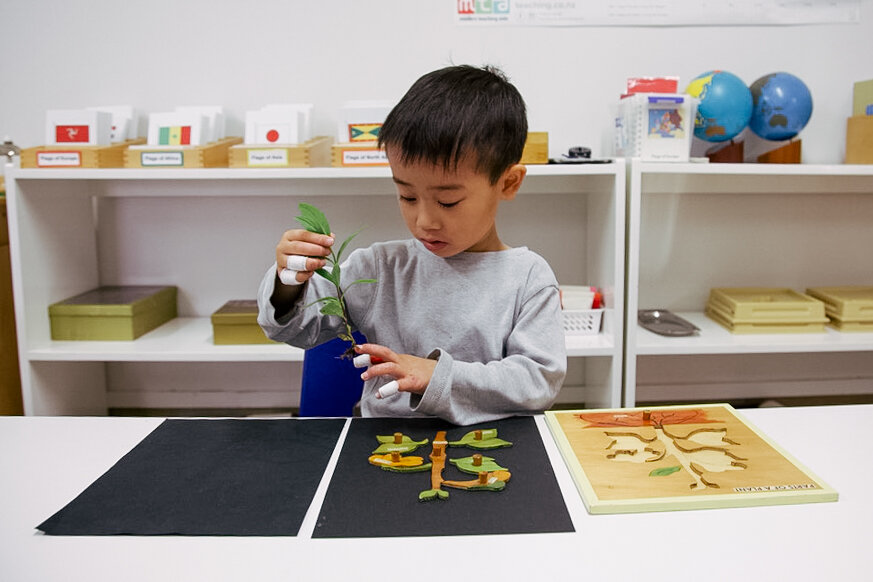
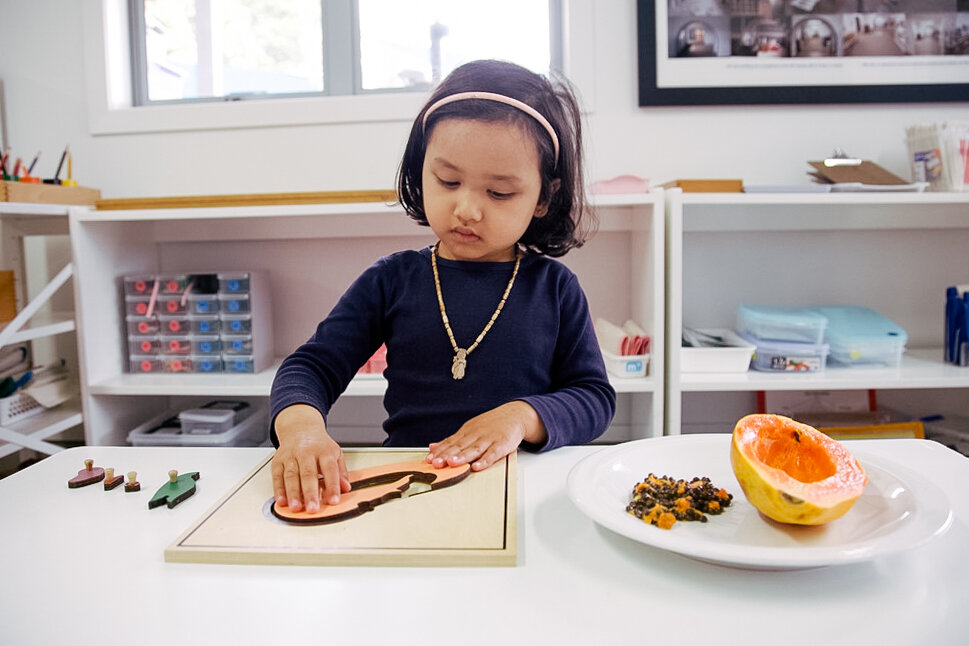
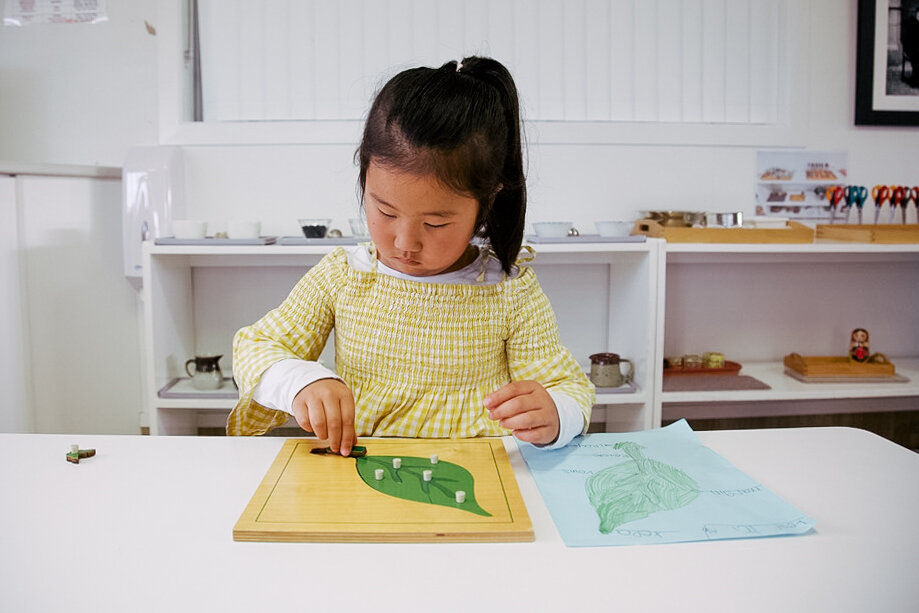
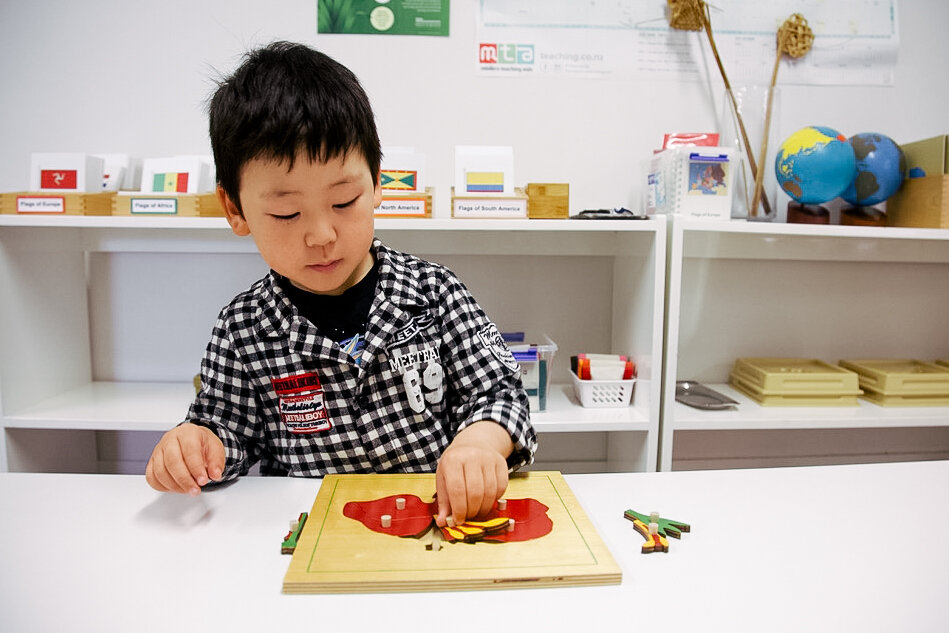
Language
Language materials provide children with the keys to expand and enrich their language and the desire to write and read. The sandpaper letters give them the shape and the Movable Alphabet allows the children to arrange these letters to form words that can be made visible to help children acquire the understanding of words and sentences.
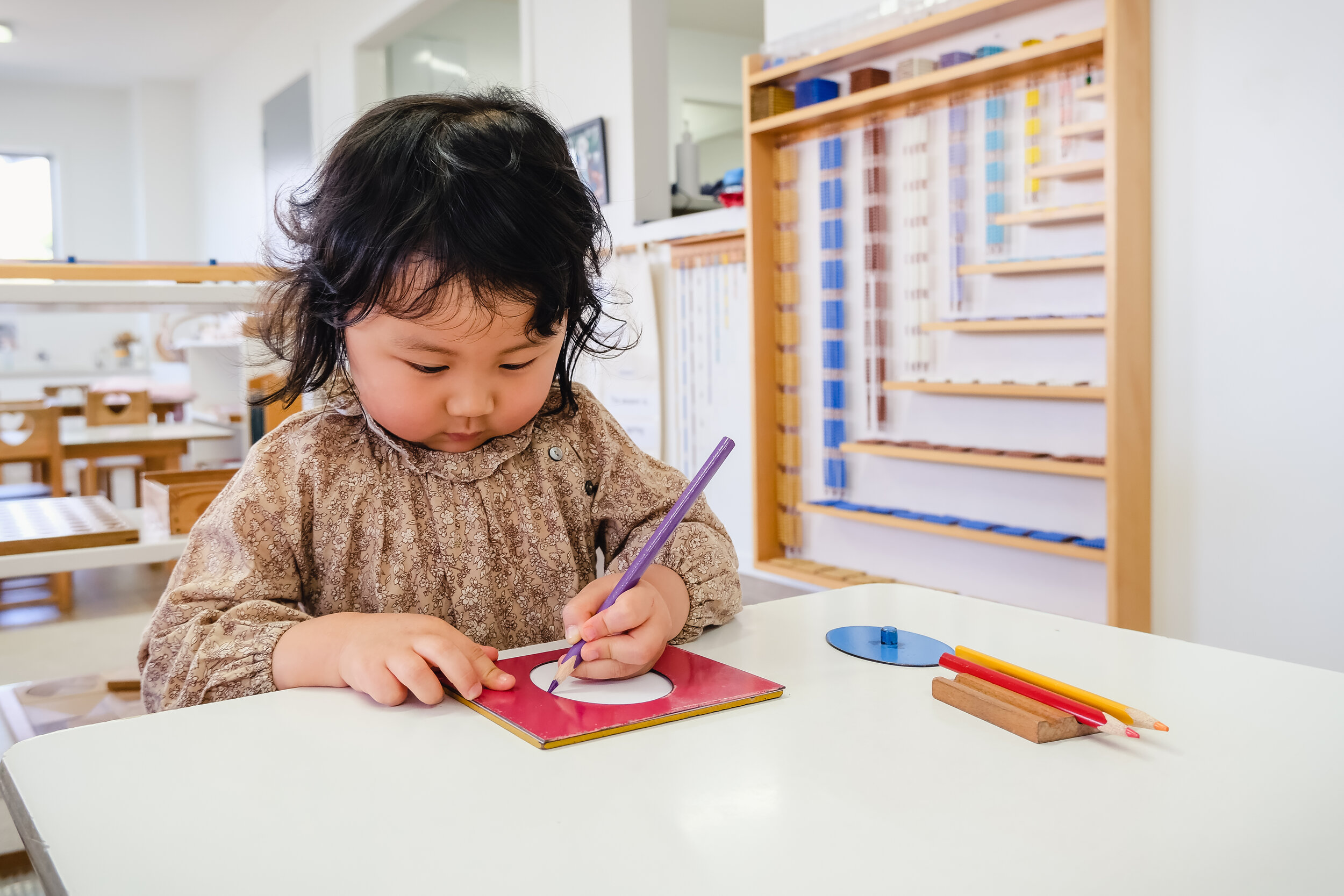
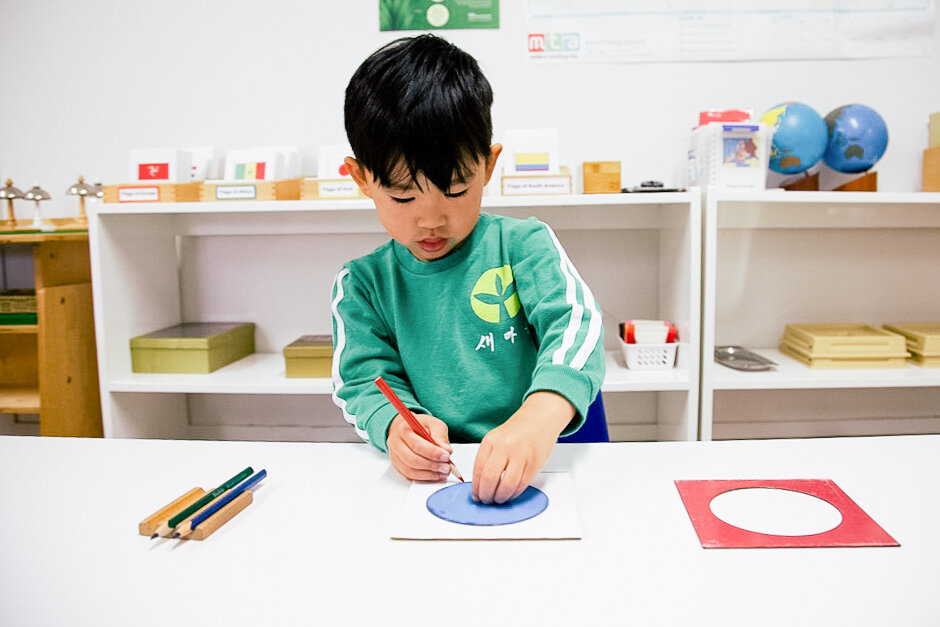
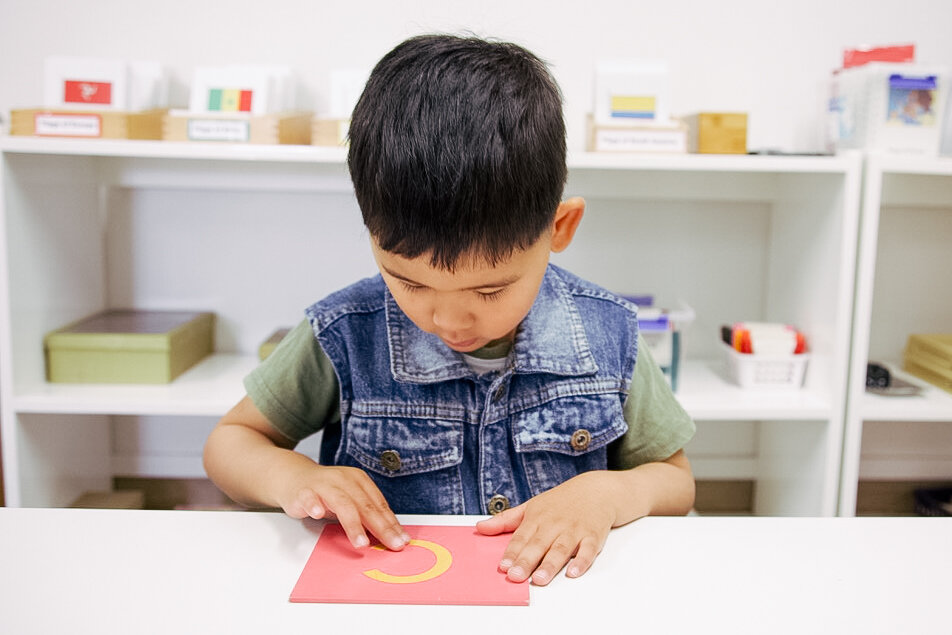
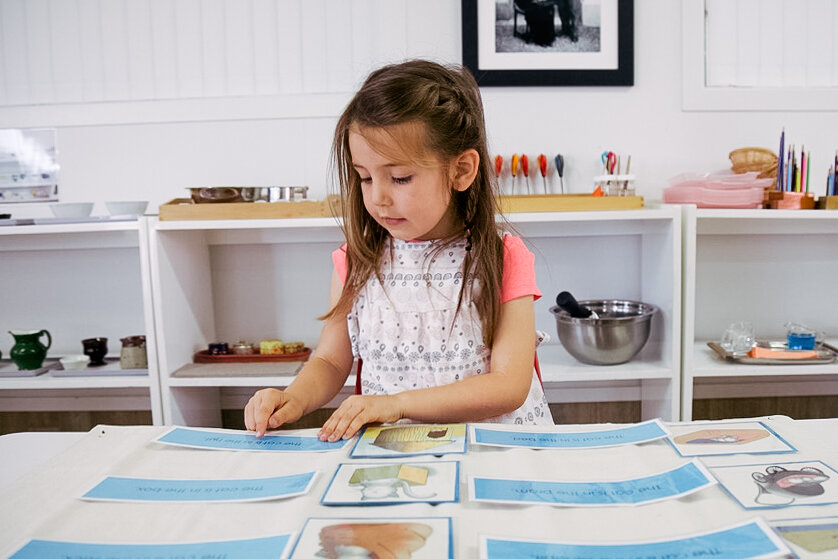
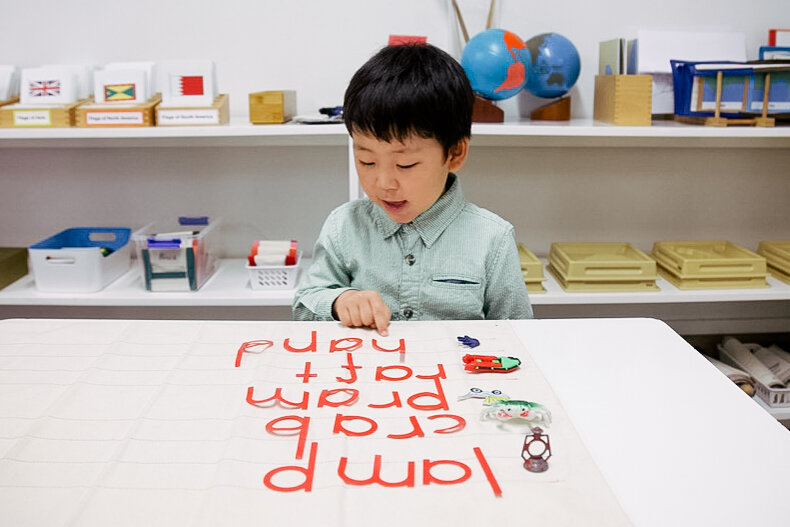
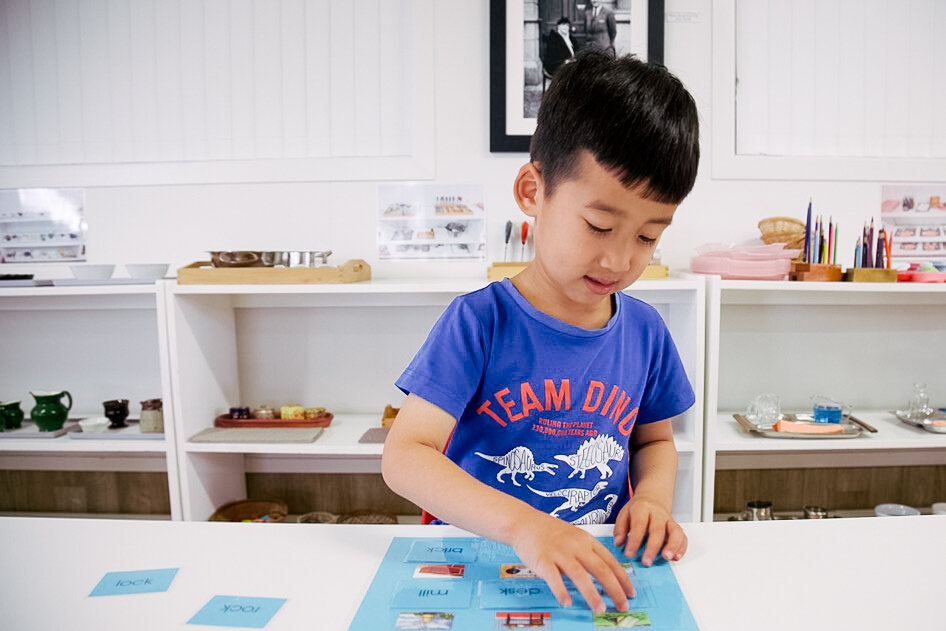
Maths
Mathematics materials allow the children to work with quantities 1 to 10 in several different dimensions, concluding with the exploration of the numerical value of the four operations such as addition, subtraction, multiplication and division in concrete form.
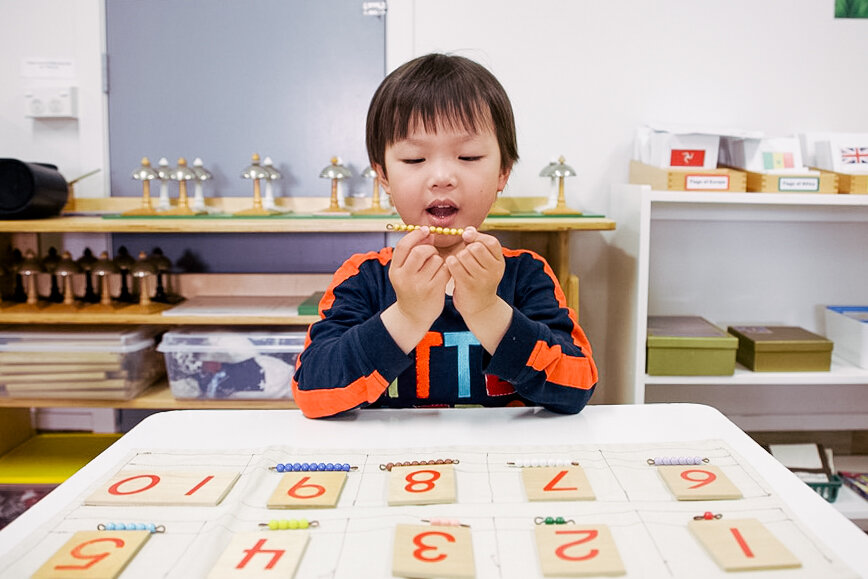
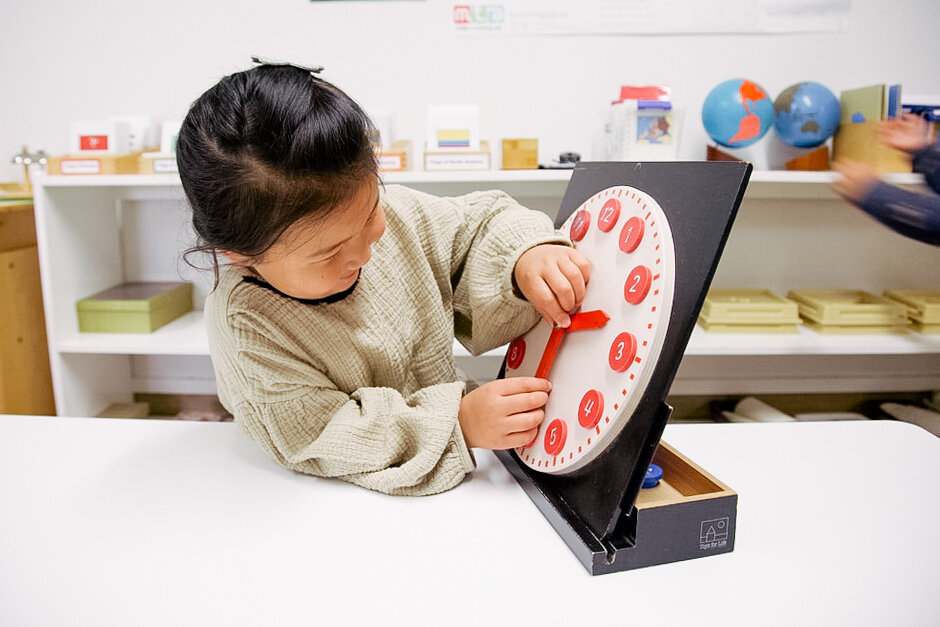
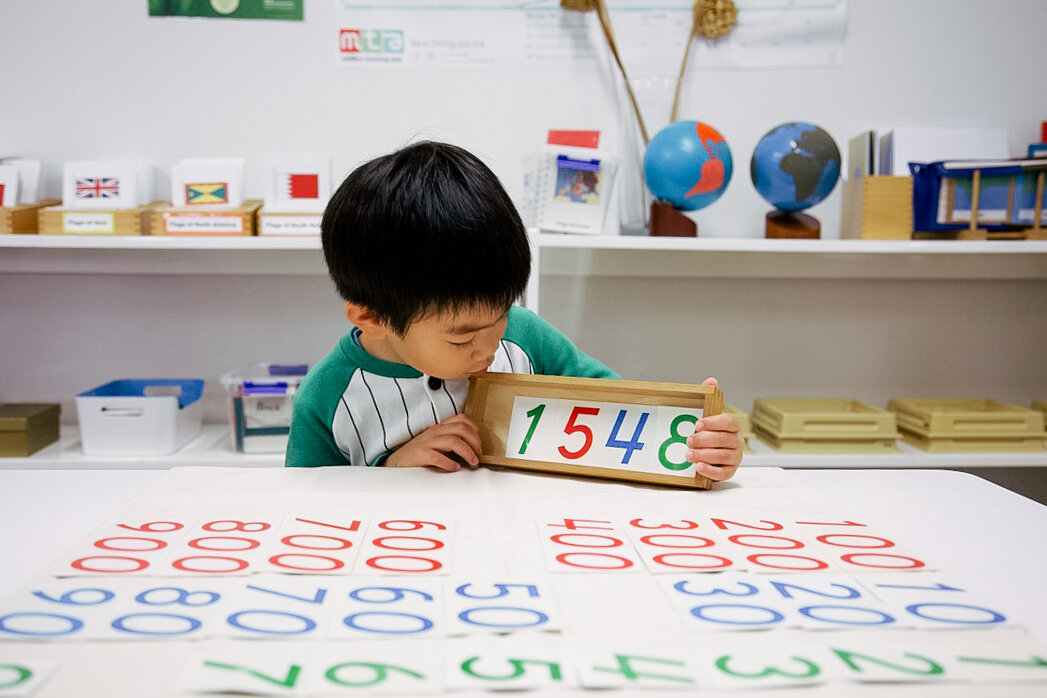
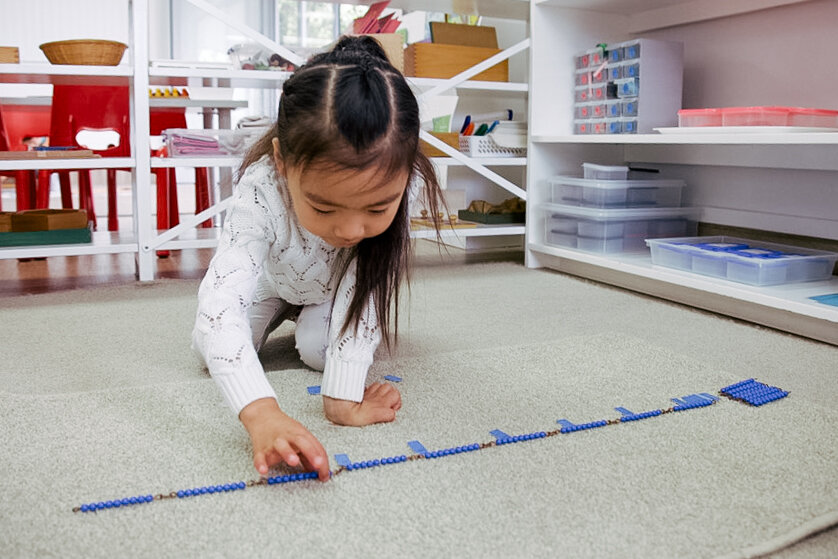
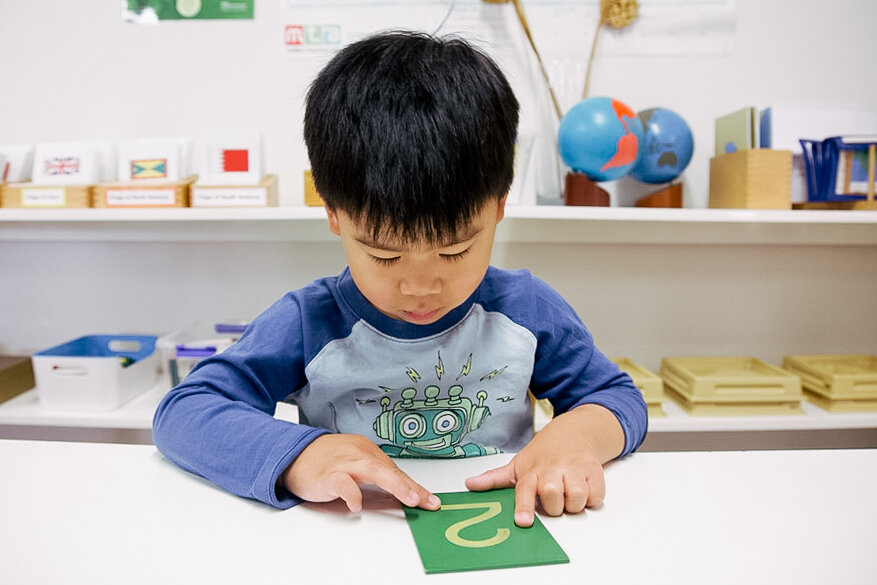
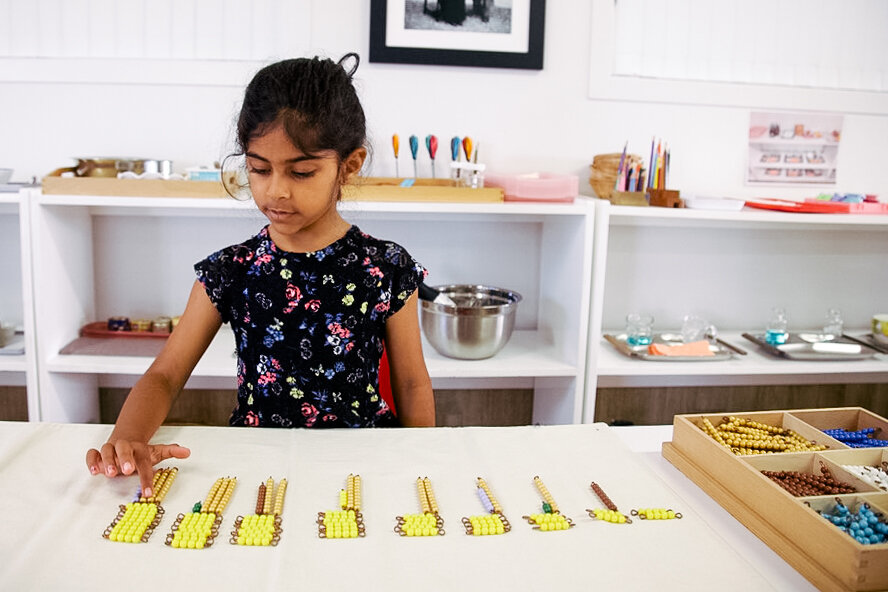
Emergent Curriculum
We follow the children’s emergent interest and extend their learning through discussion and group work. The teacher has discussions with the children about what they are doing and listens to their responses. The teacher provides the equipment and resources that challenge the children to explore and experiment and then problem solve to develop skills in language, maths, music and arts.
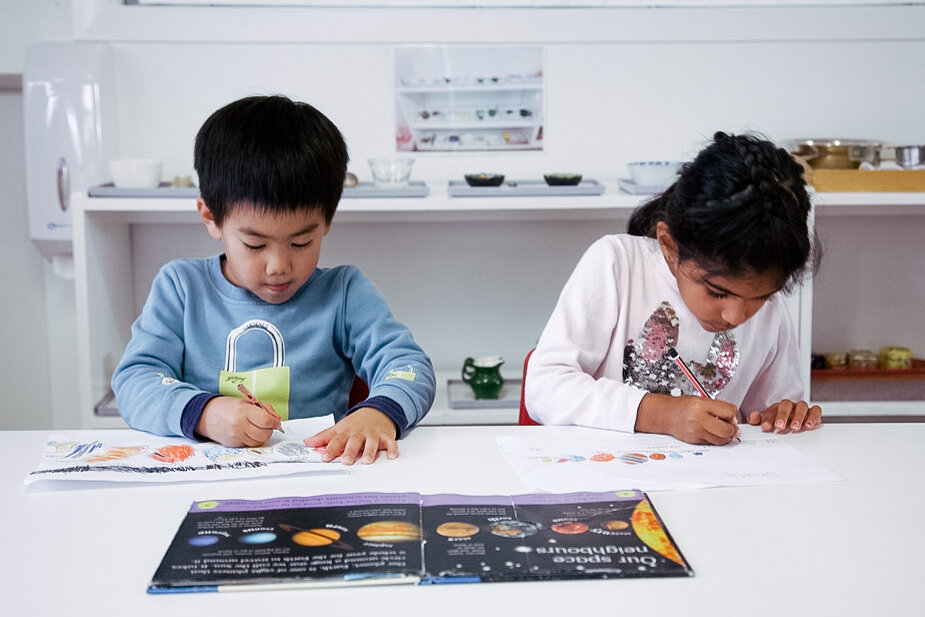
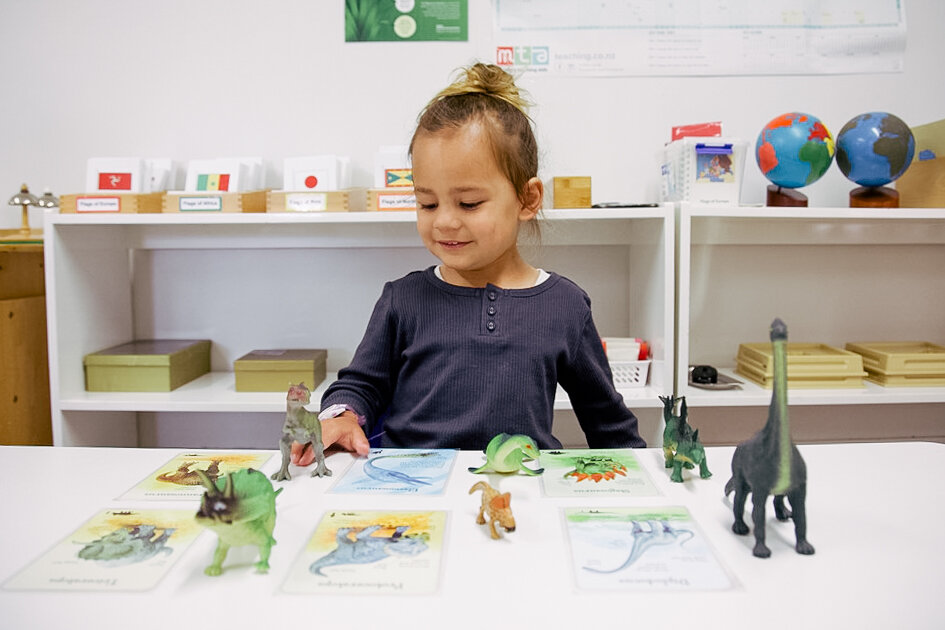
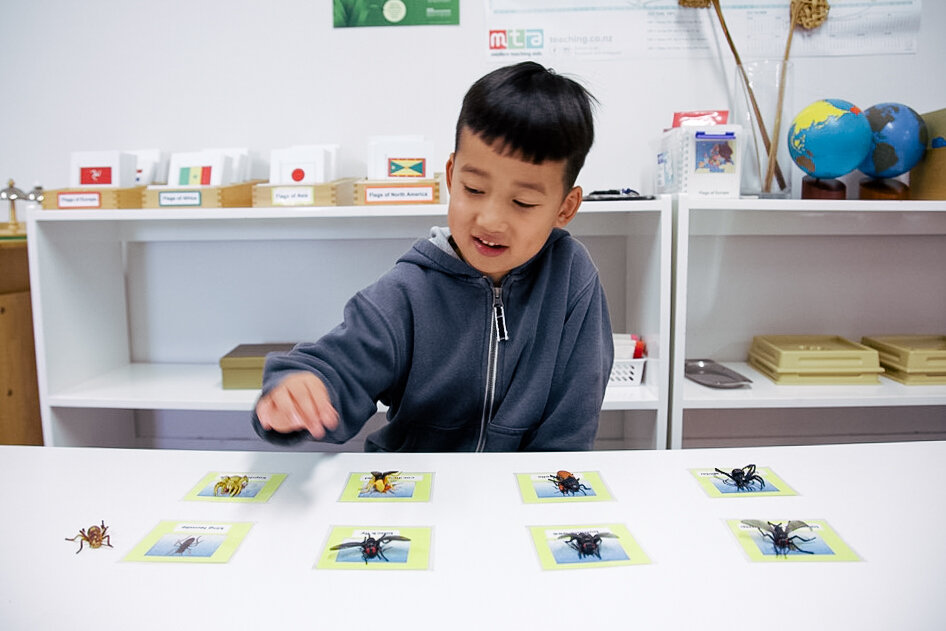
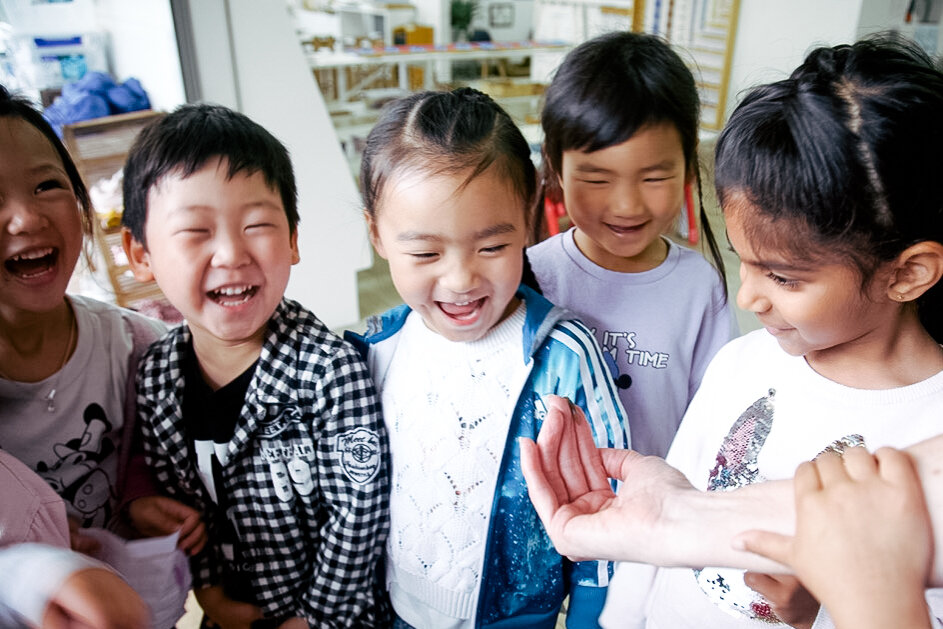
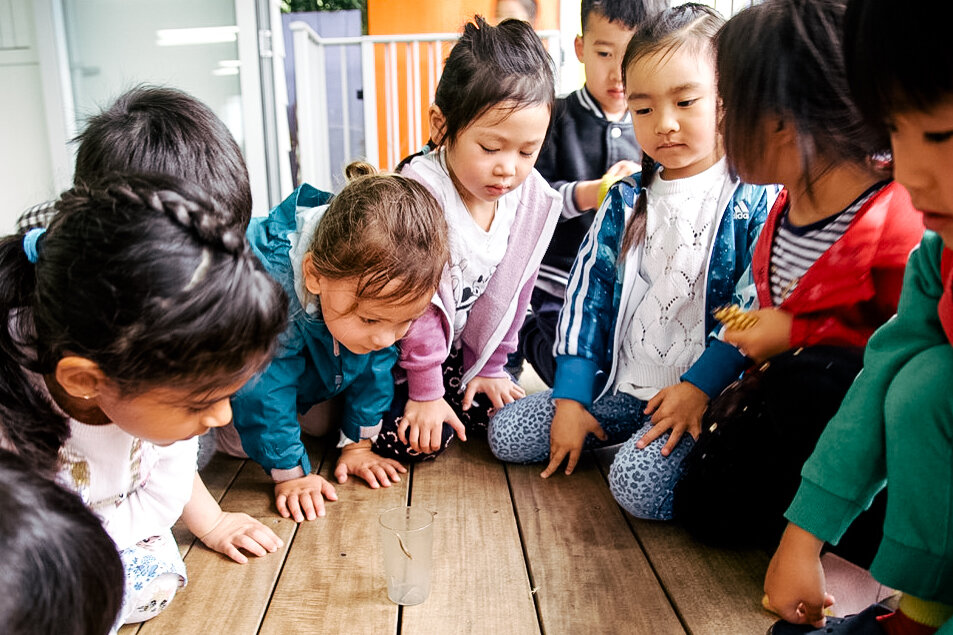
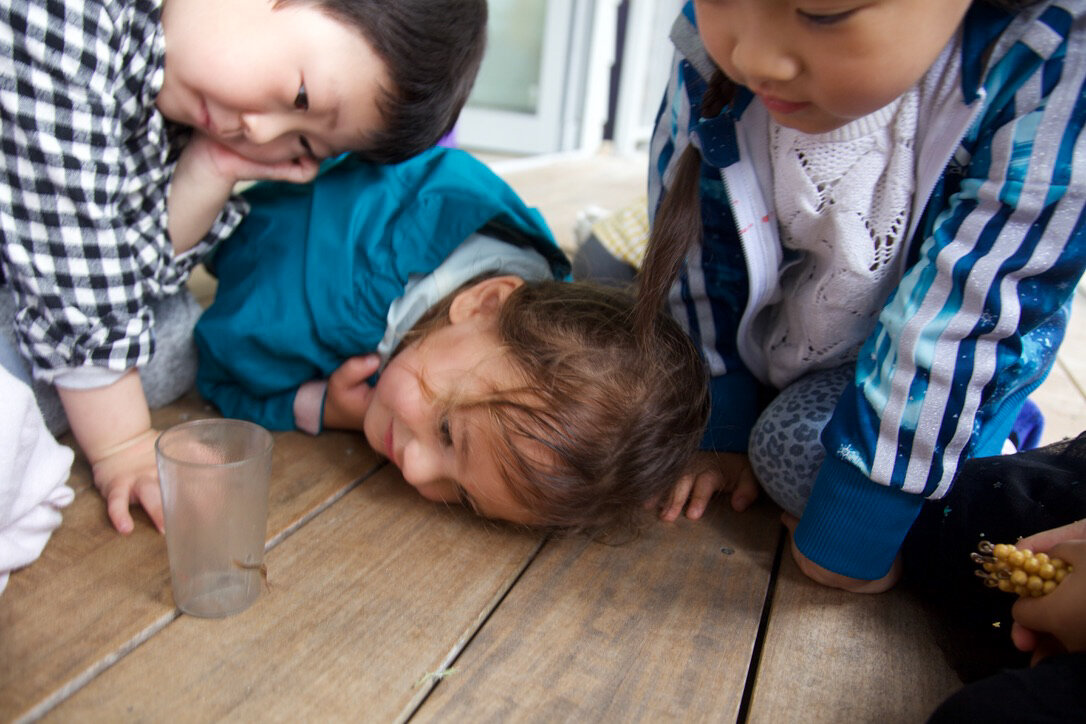
Music
Music activities give the children the opportunity to learn skills such as listening skills, moving expressively to sound and music, experimenting with percussion instruments, naming them and identifying their sounds. Music and Movement helps children cooperate, think and problem-solve and is one of the acceptable avenues for release and expression of feelings, moods and emotions.
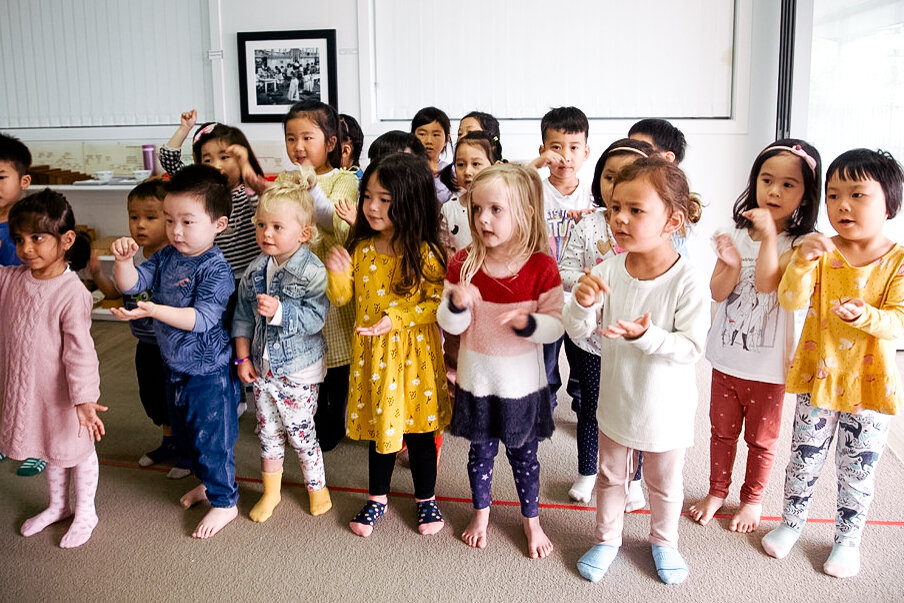

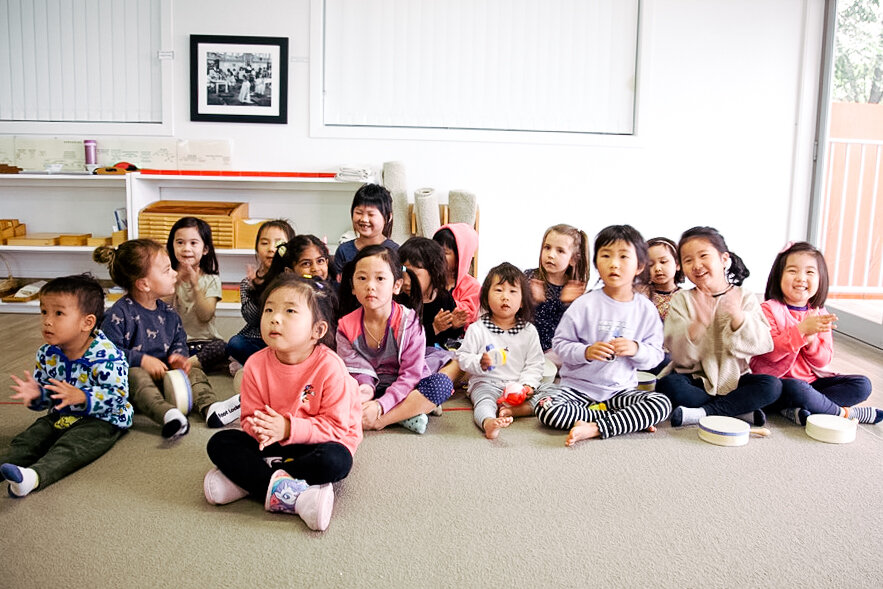
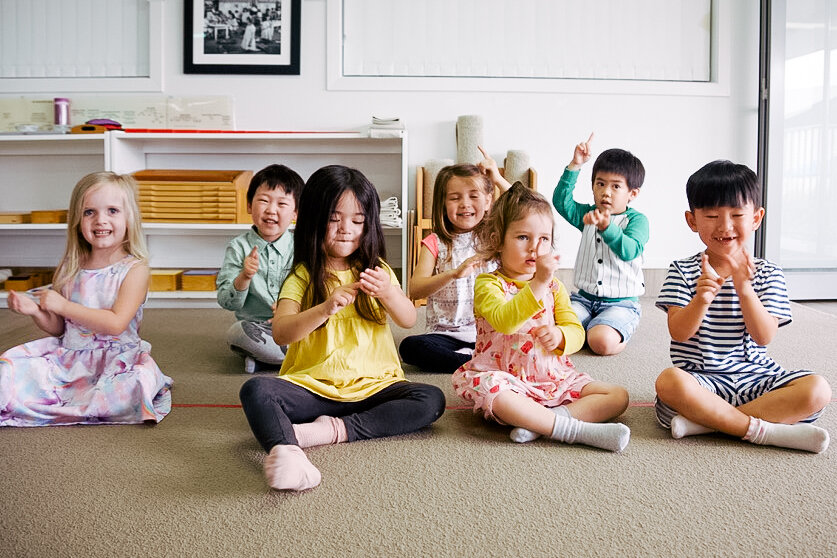
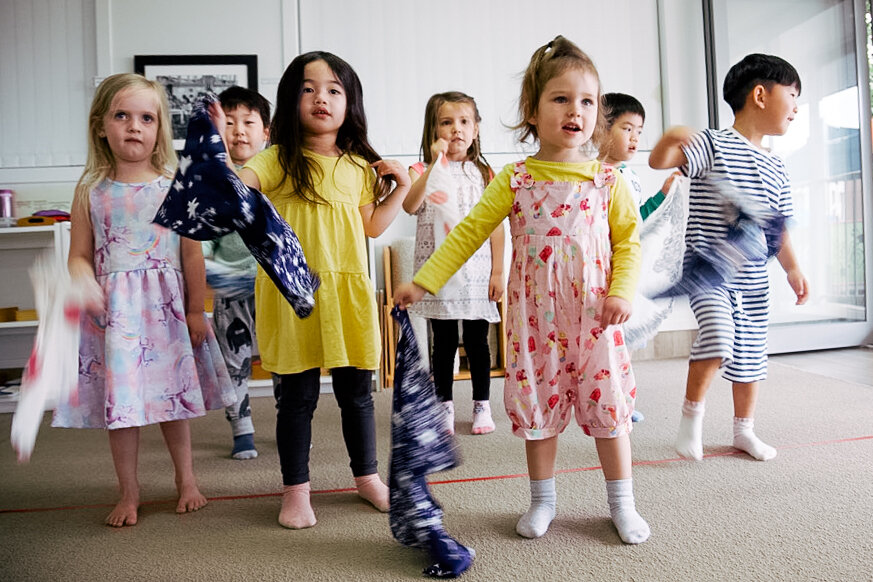
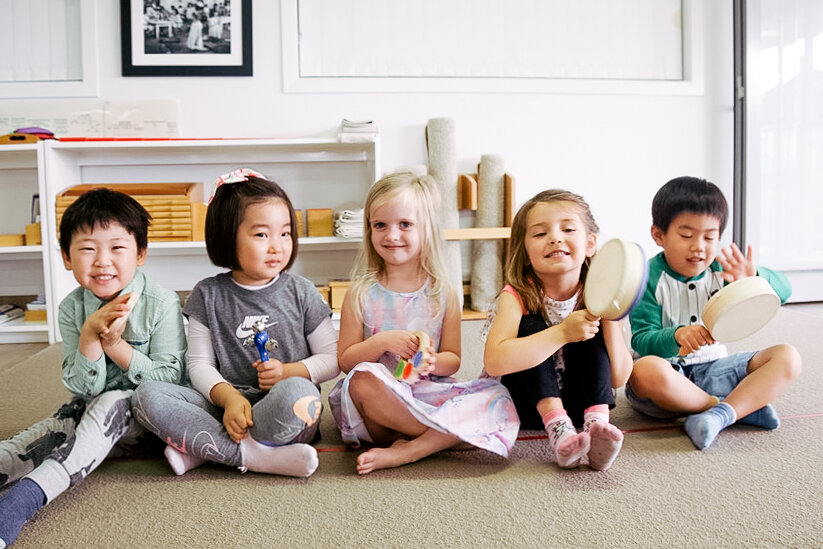
Outdoor
Outdoor play is fun for children and important for their growth and development. When children participate in physical active play, they are developing their large and small muscles, gaining increasing control over their bodies, agility, coordination and balance. The children will develop abilities and interests in a wide range of domains including spatial, visual, logical and mathematical.
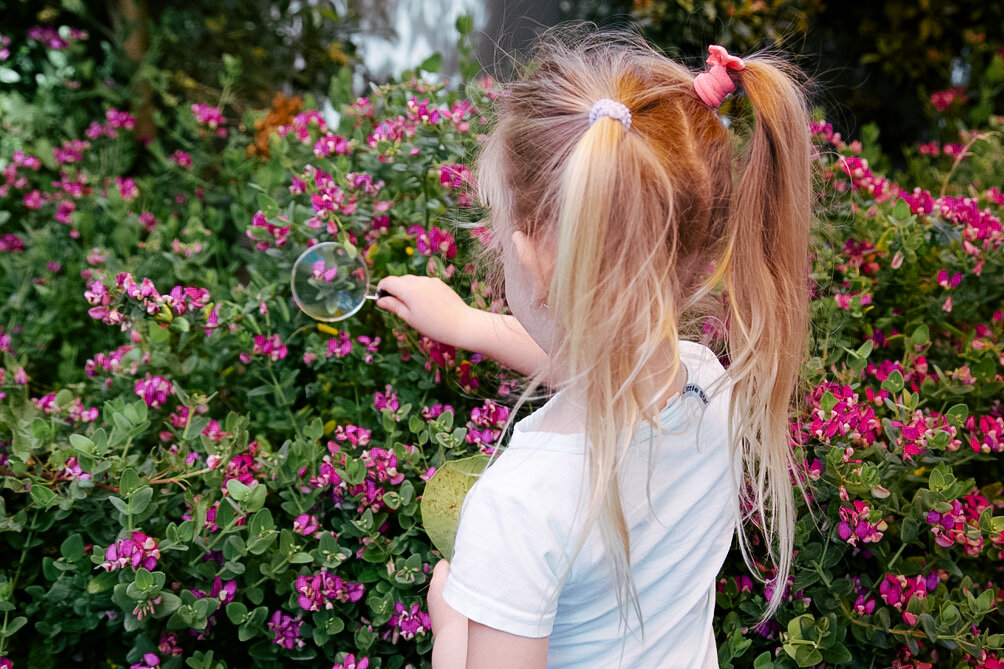
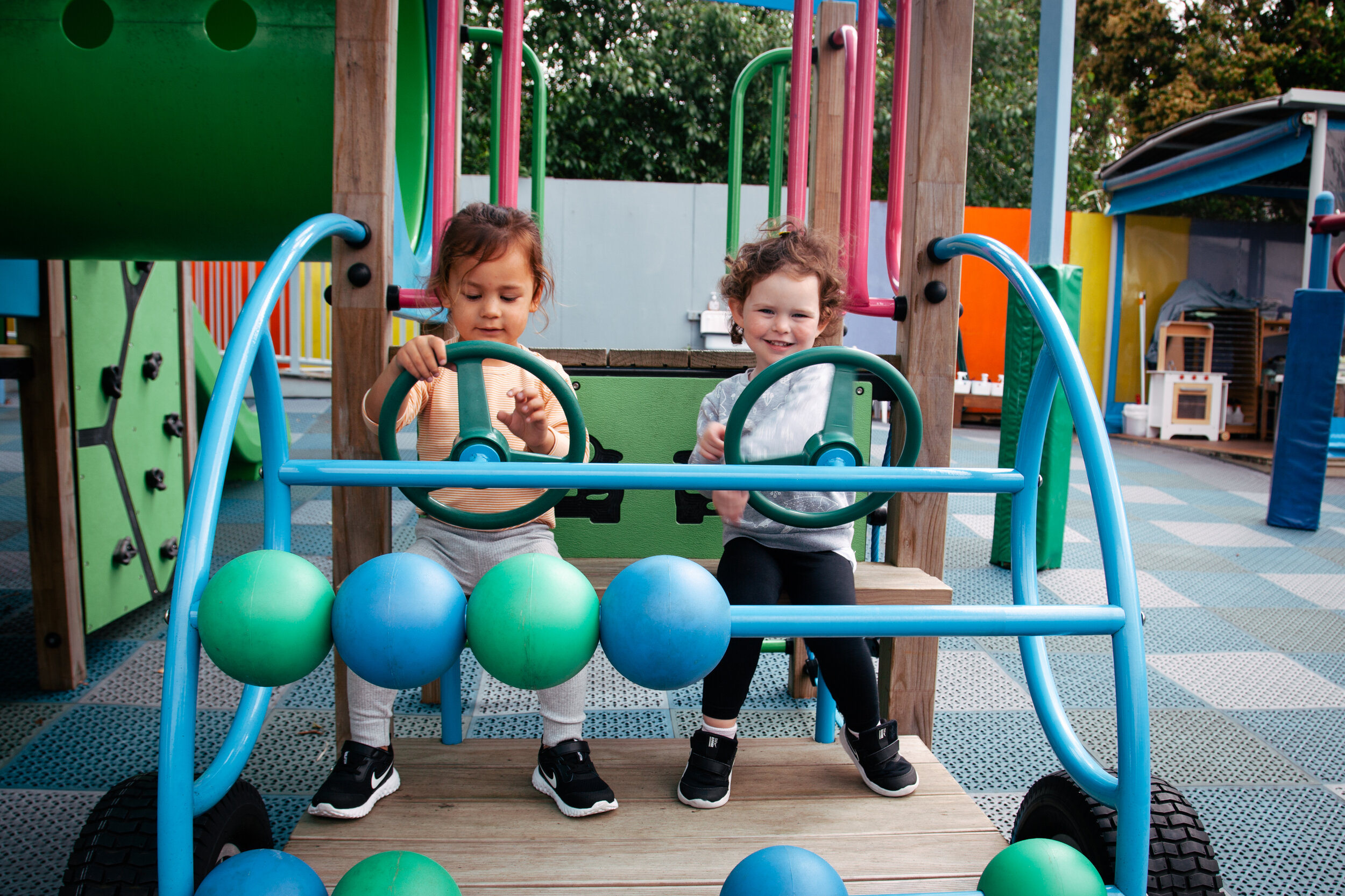
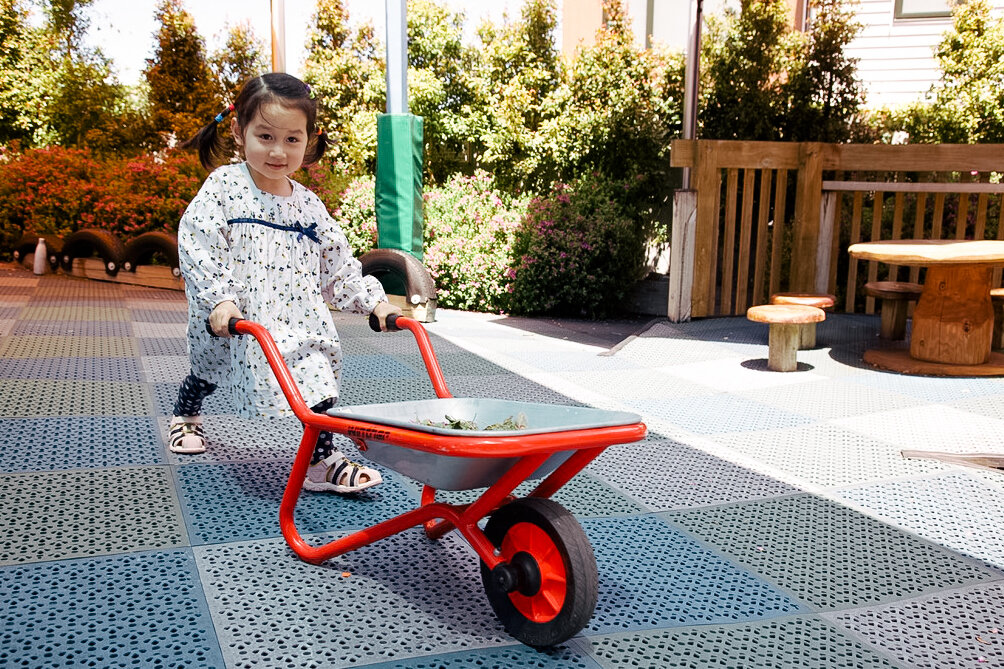
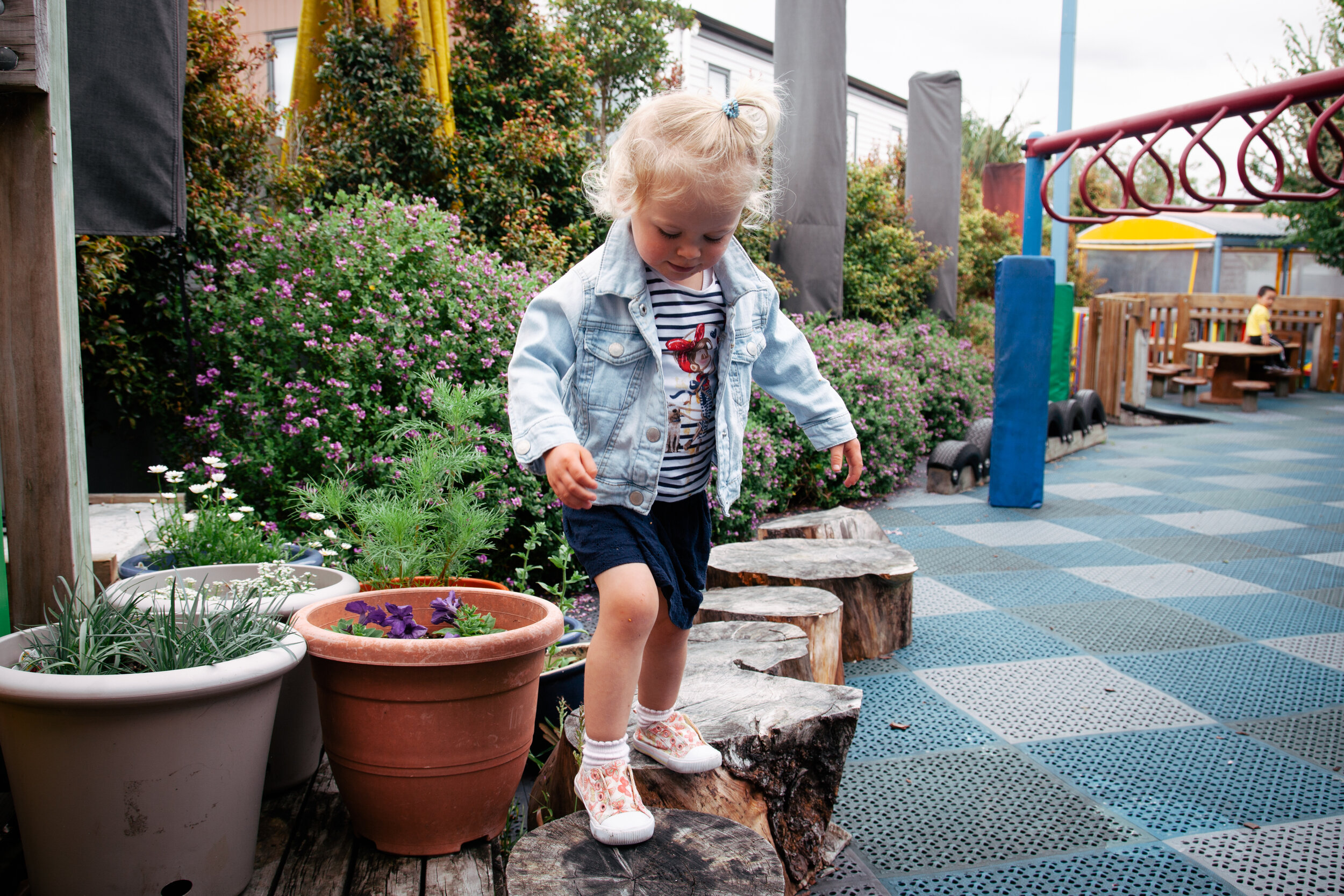
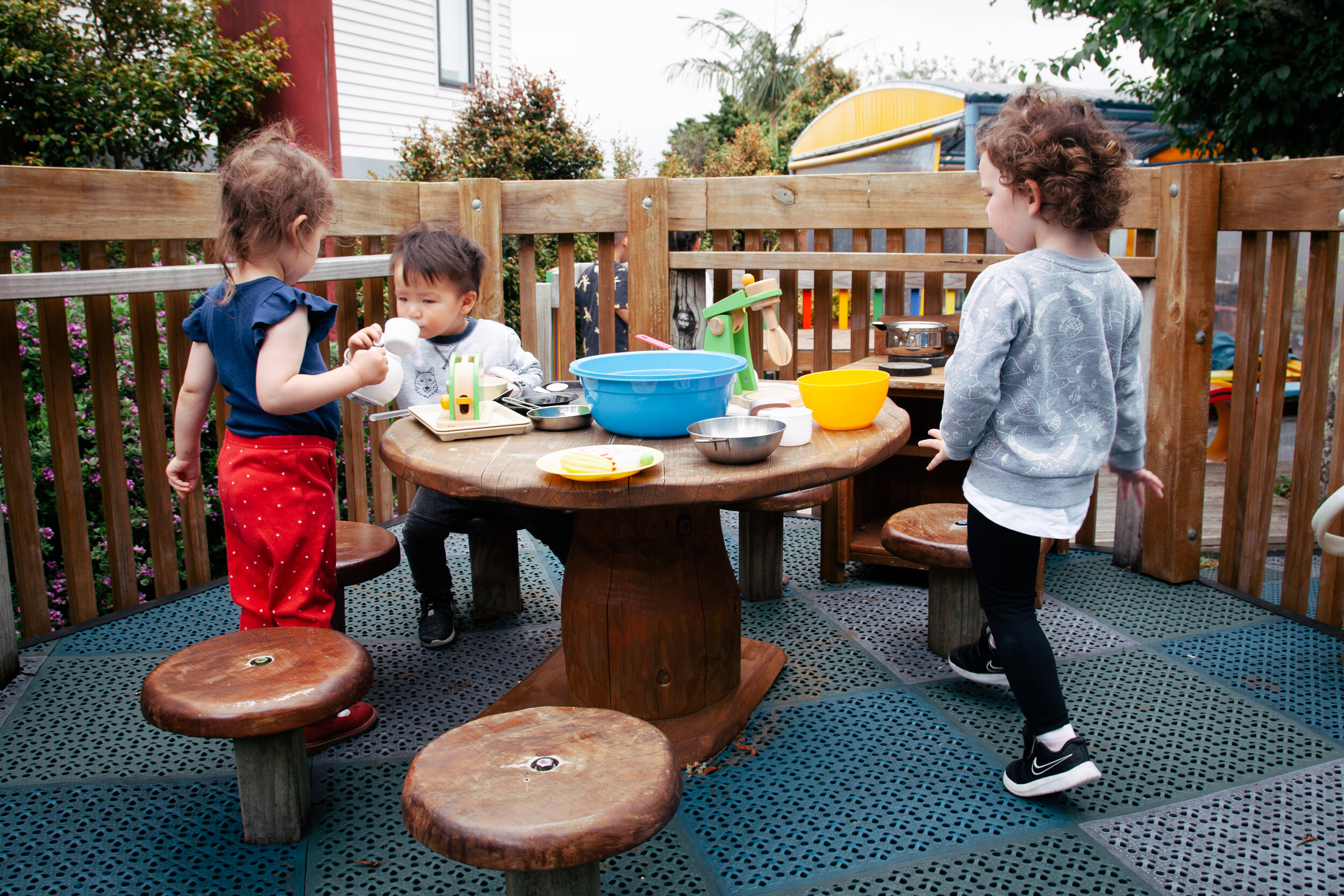
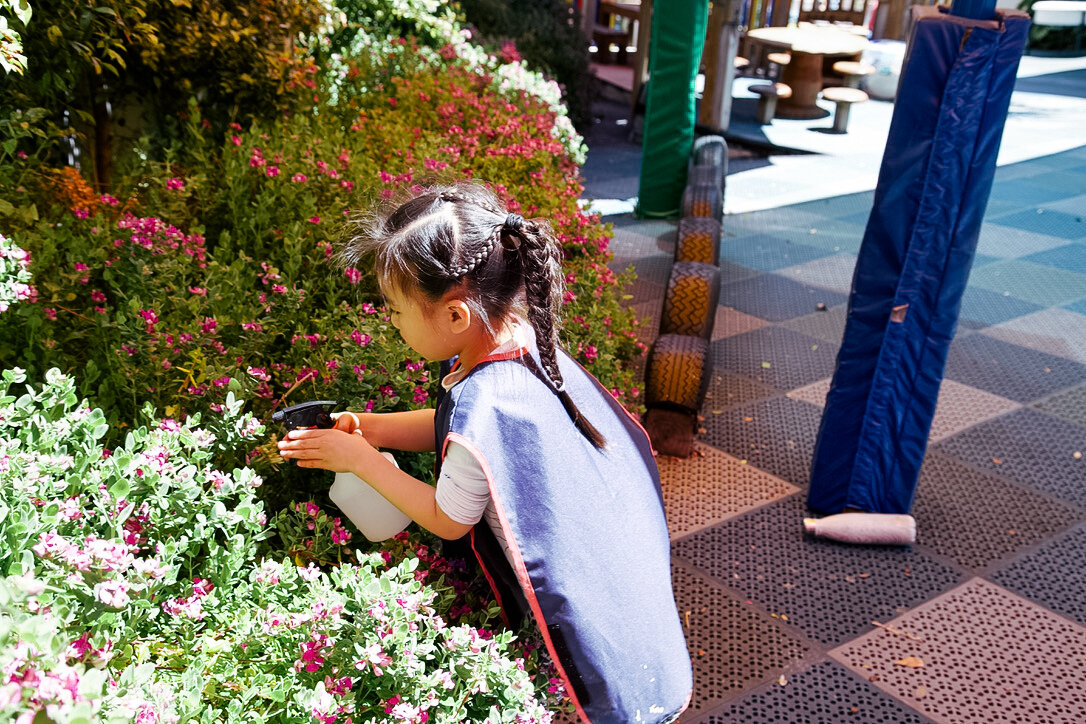
Geography
Geography Materials provide the children with the opportunity for exploring the earth, organizing it into states and countries, each with their flags and information about the people, places and culture.
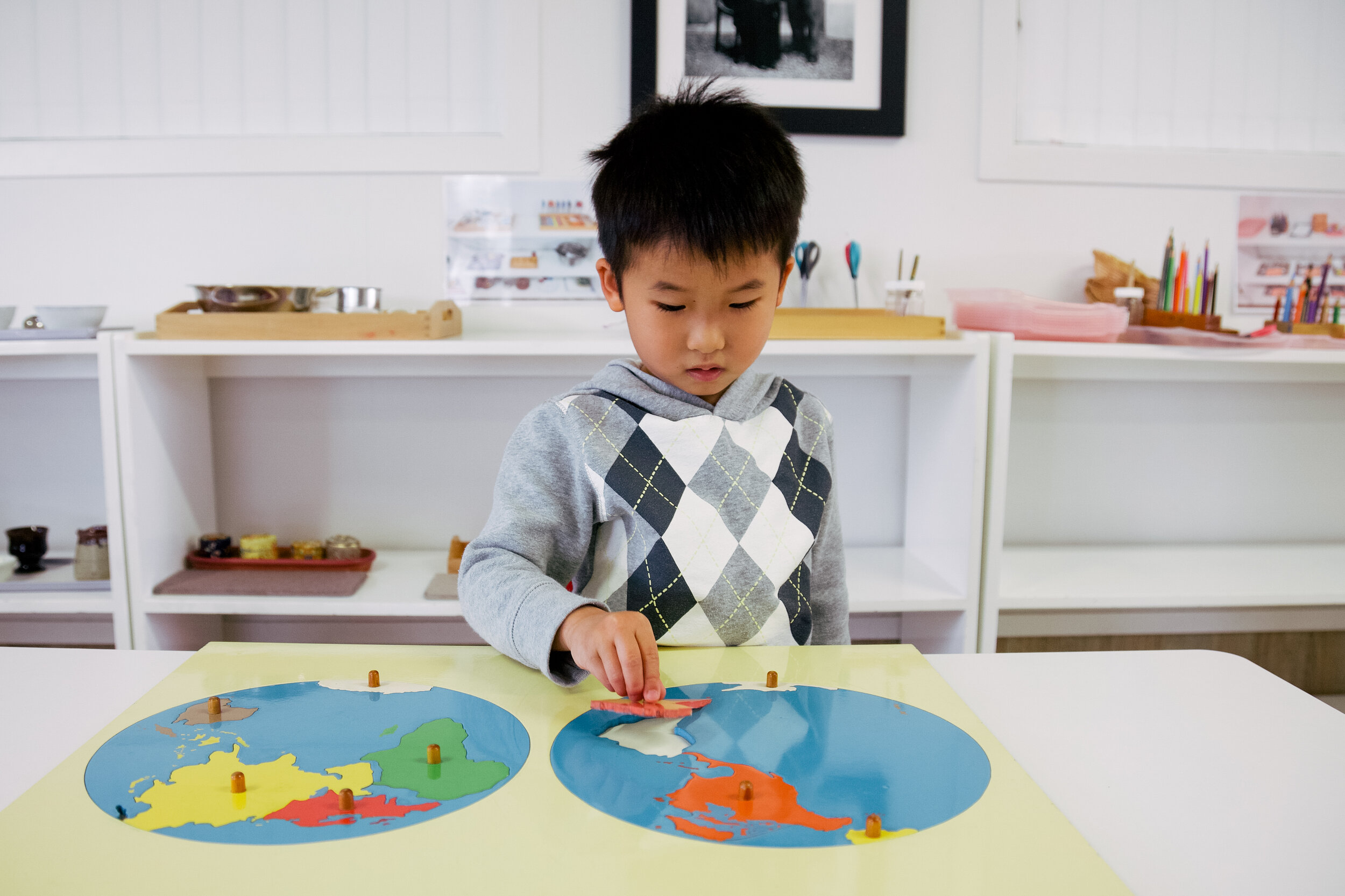
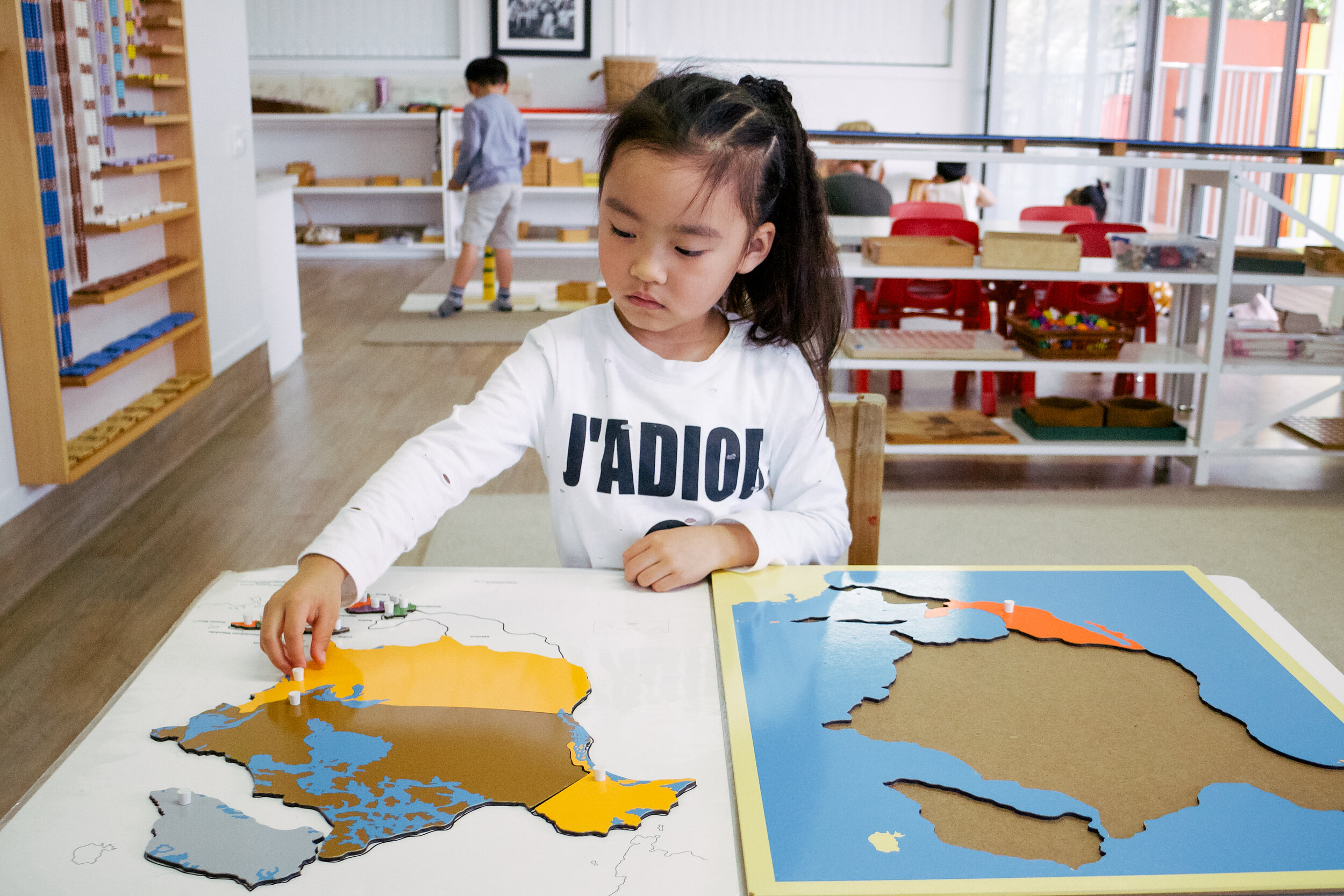
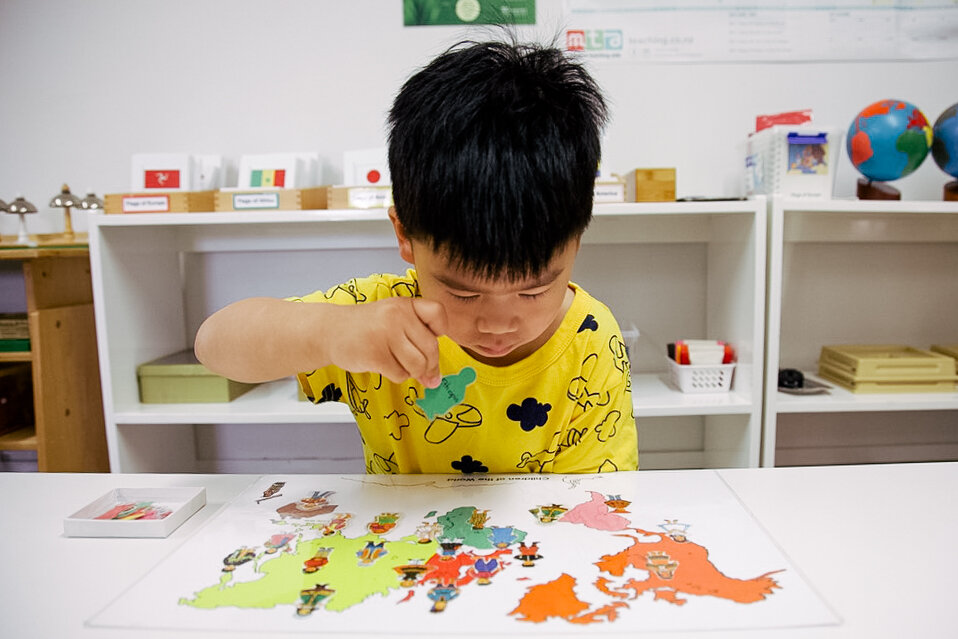
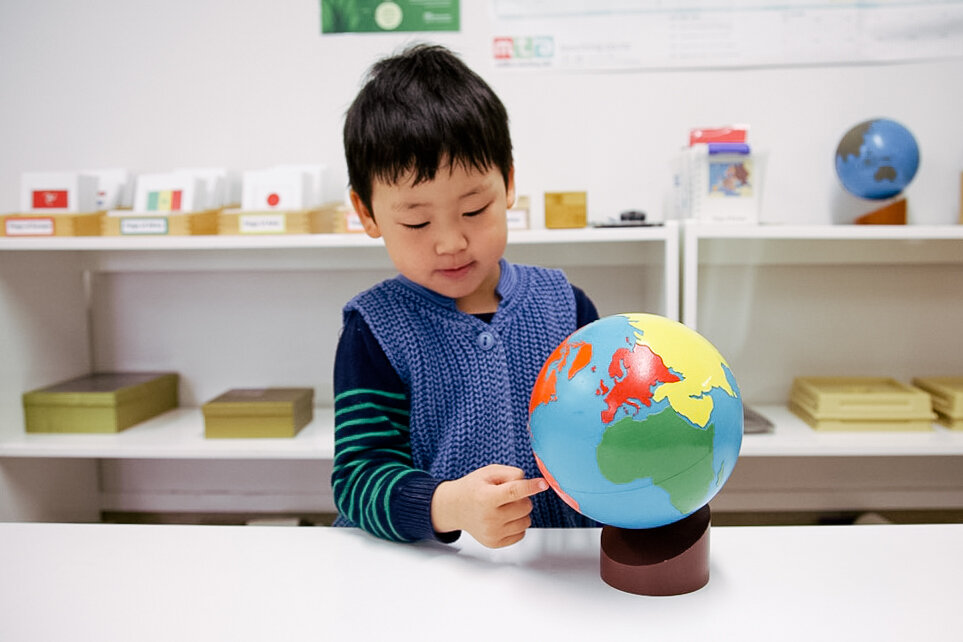
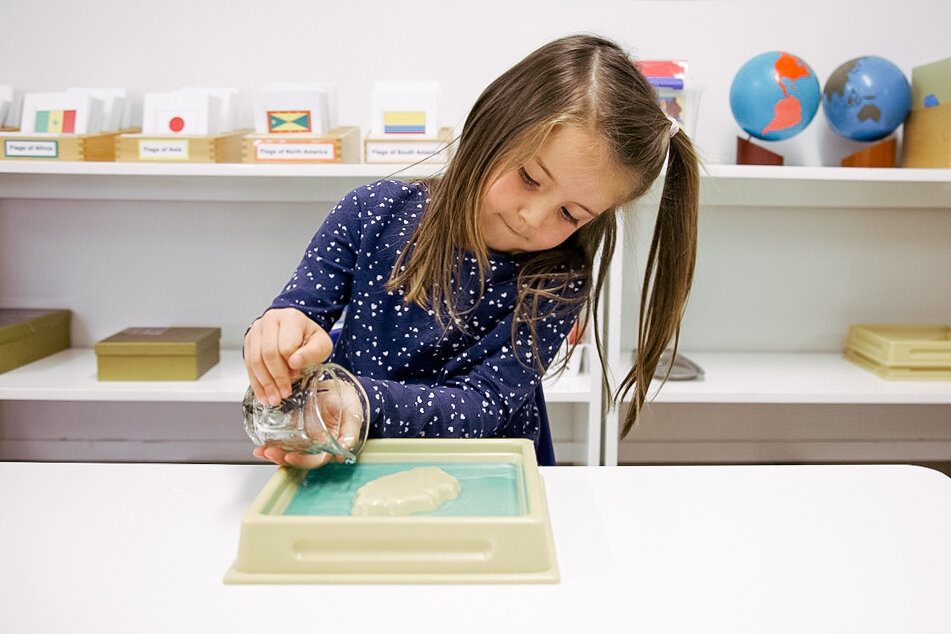
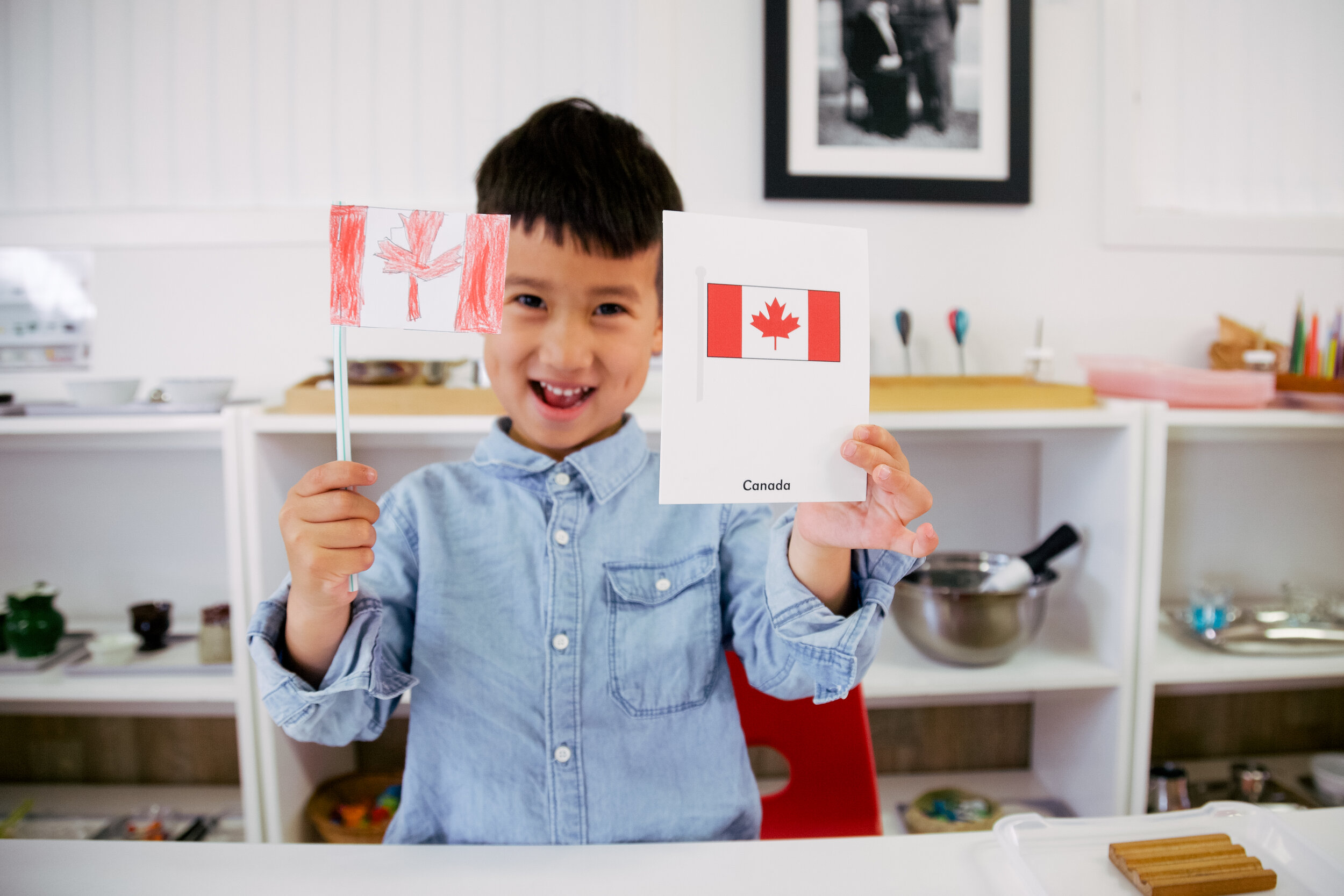
Art
Artwork benefits all aspects of children’s development. As they experiment with colour, shape, design and texture, they develop an awareness and appreciation of pleasant sensory experiences to express how they feel, think and view the world.
